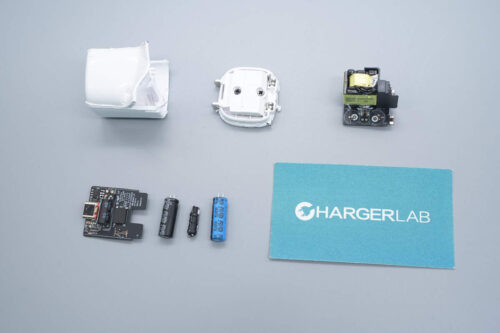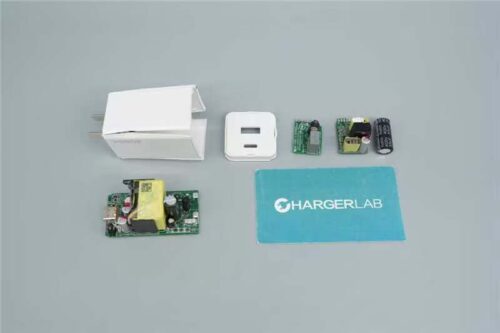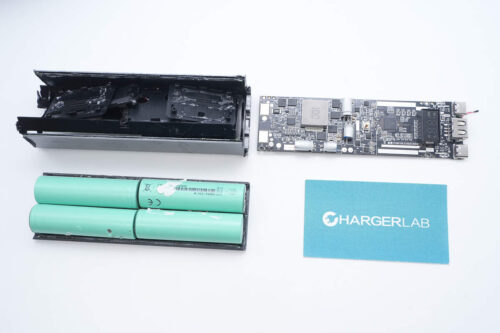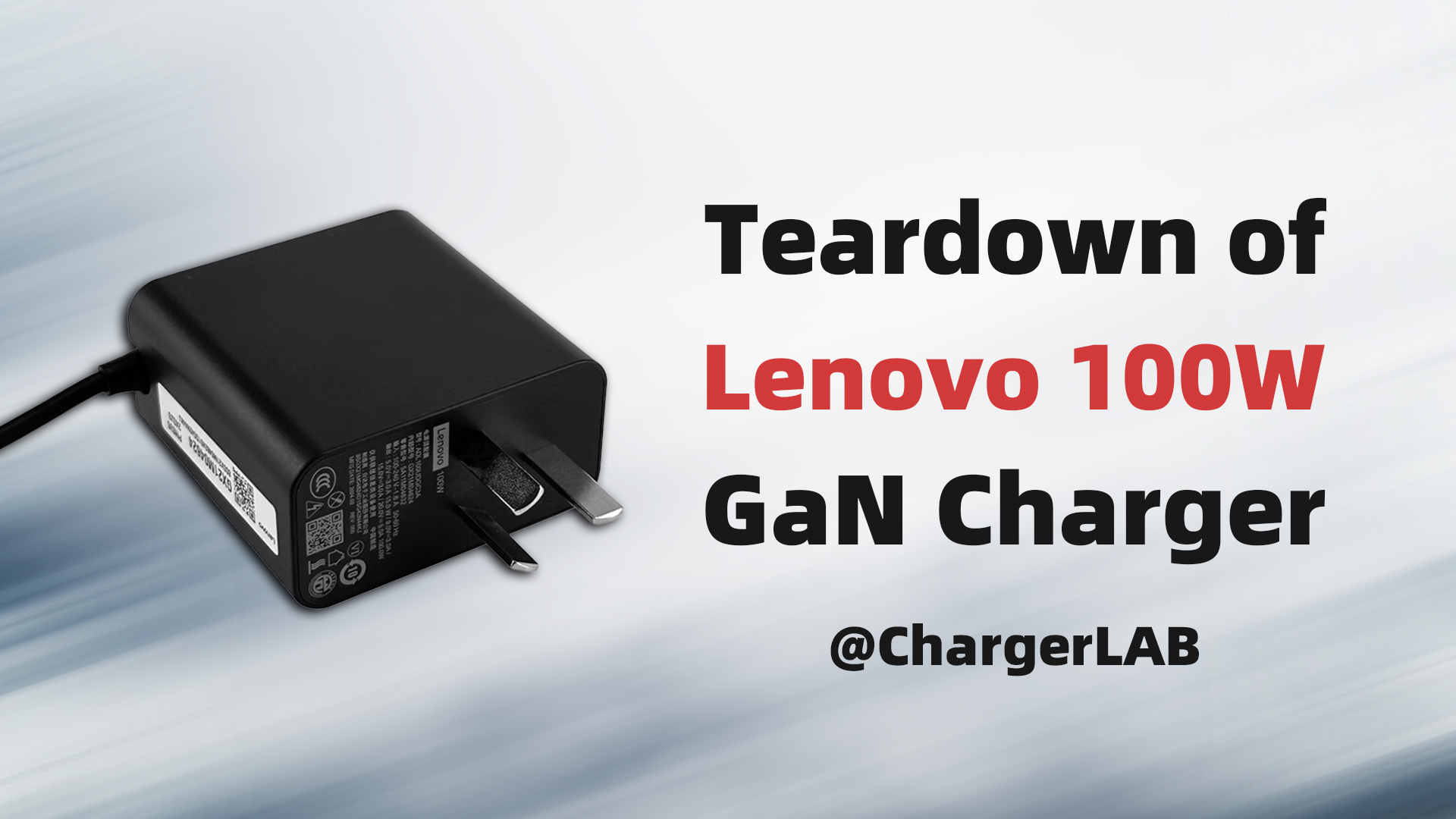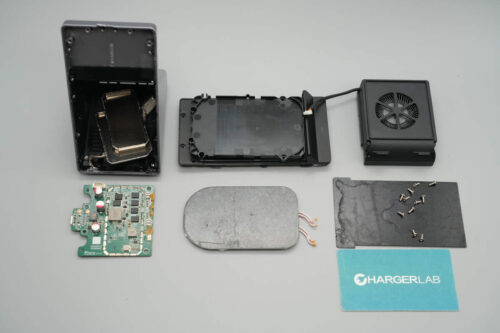Introduction
The Pudding series has become popular among consumers for its compact, highly recognizable design, as well as its excellent performance and build quality. Recently, Xiaomi introduced a new 45W version featuring a foldable plug, model MDY-18-EZ. It supports 45W PD and Xiaomi’s proprietary fast-charging protocol, ensuring efficient charging for smartphones, tablets, and some lightweight laptops. Let’s take a closer look at its internal components and design.
Product Appearance
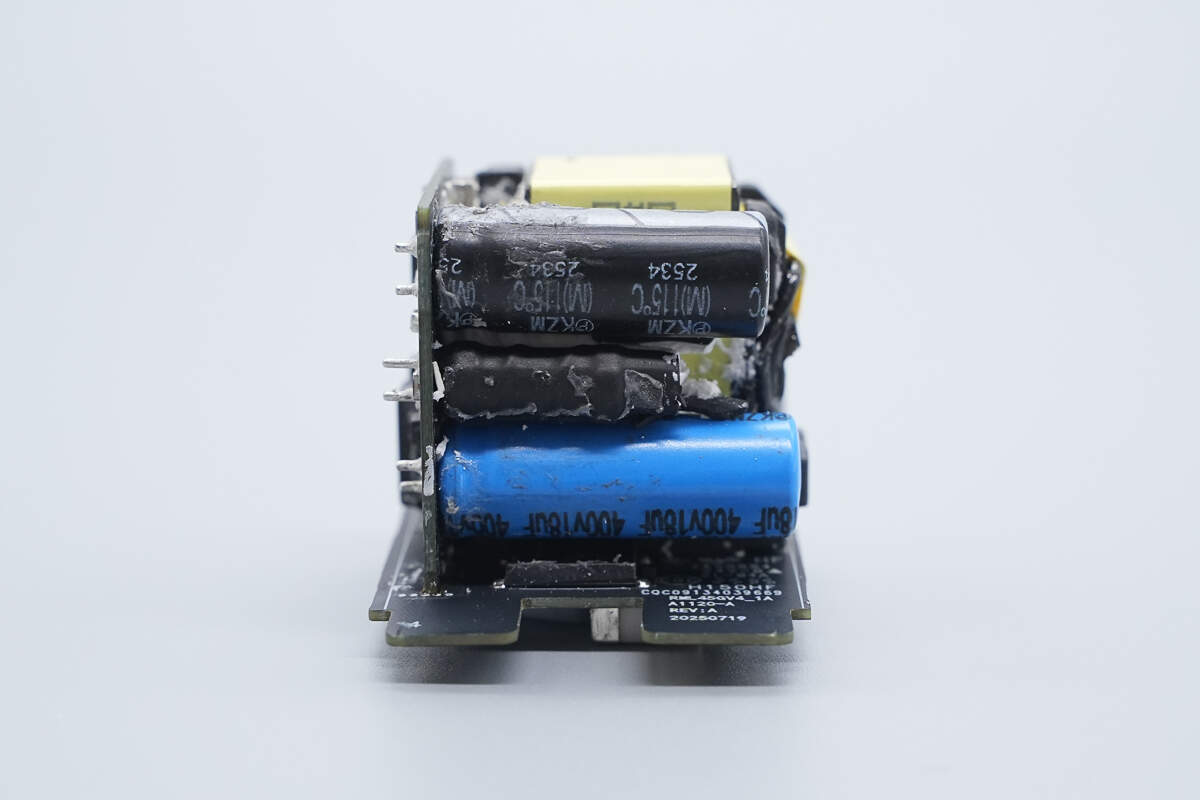
The front of the packaging features the Xiaomi logo, the product name, and an image of the charger.
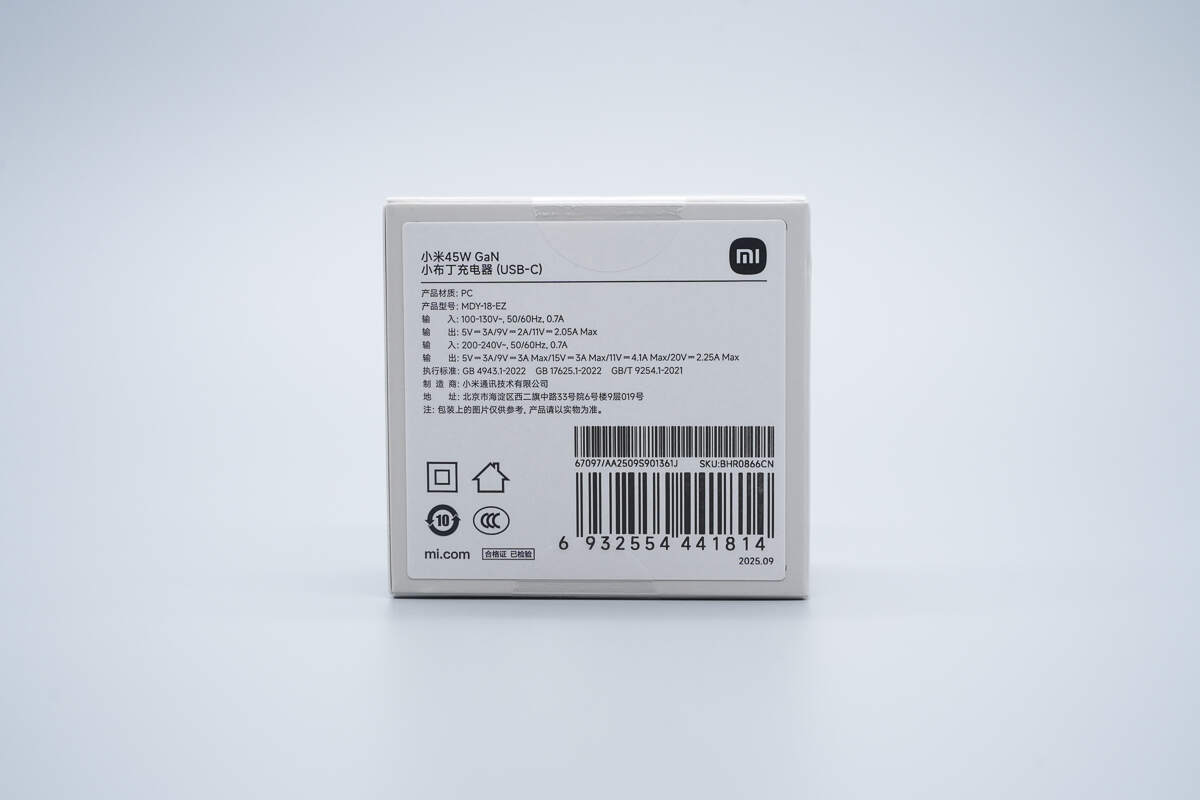
A specification label is affixed to the back of the packaging.
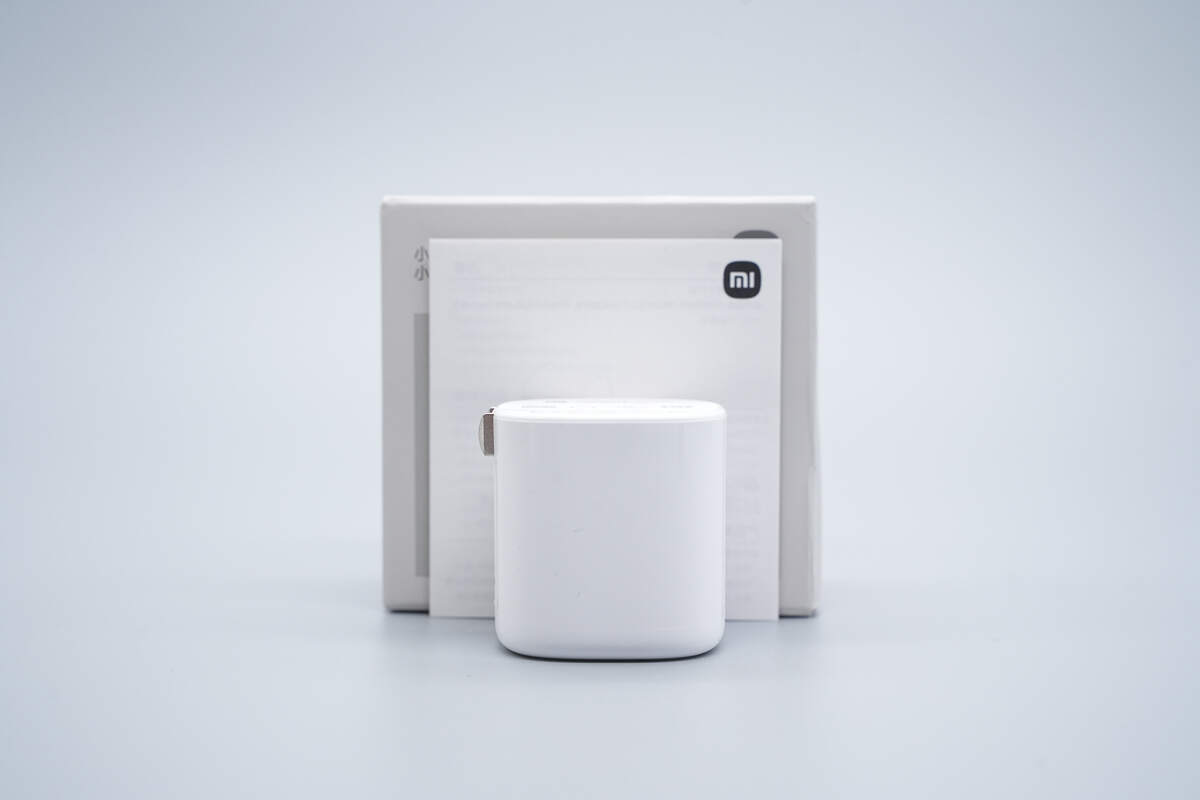
The package includes the charger and a user manual.
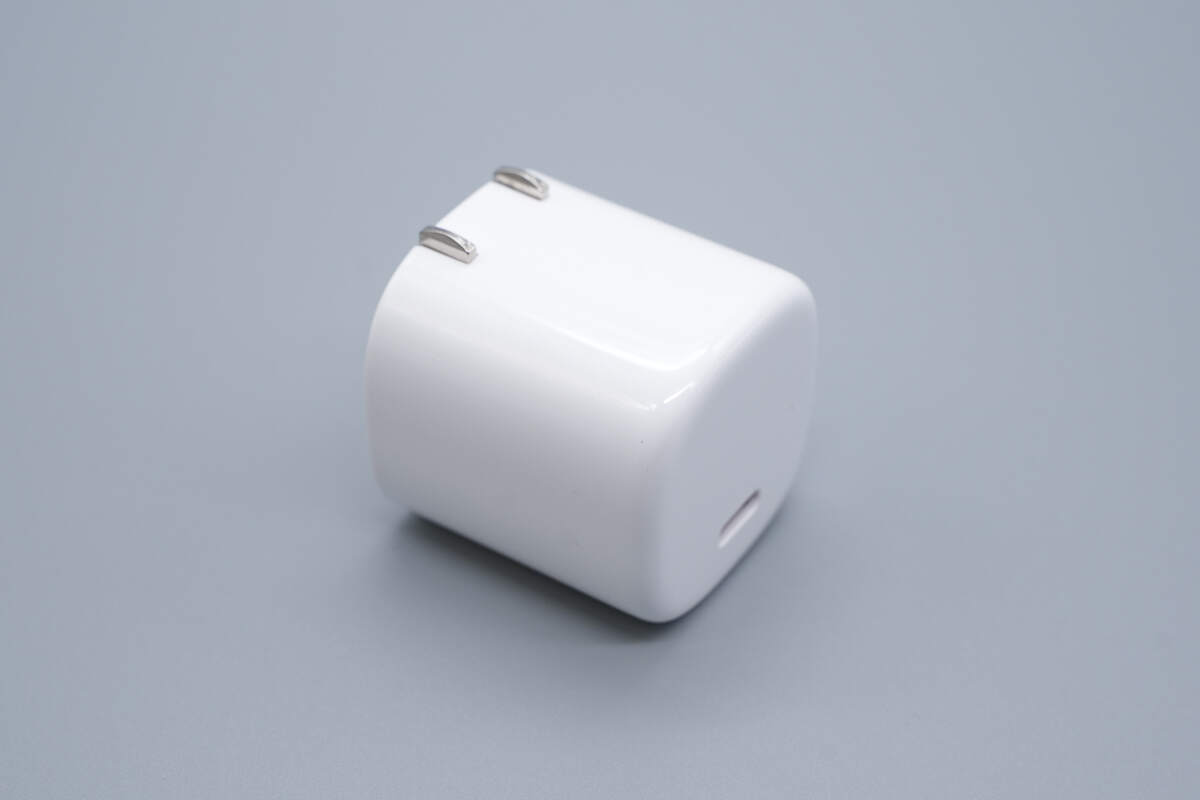
It features a glossy white exterior with smoothly rounded edges.
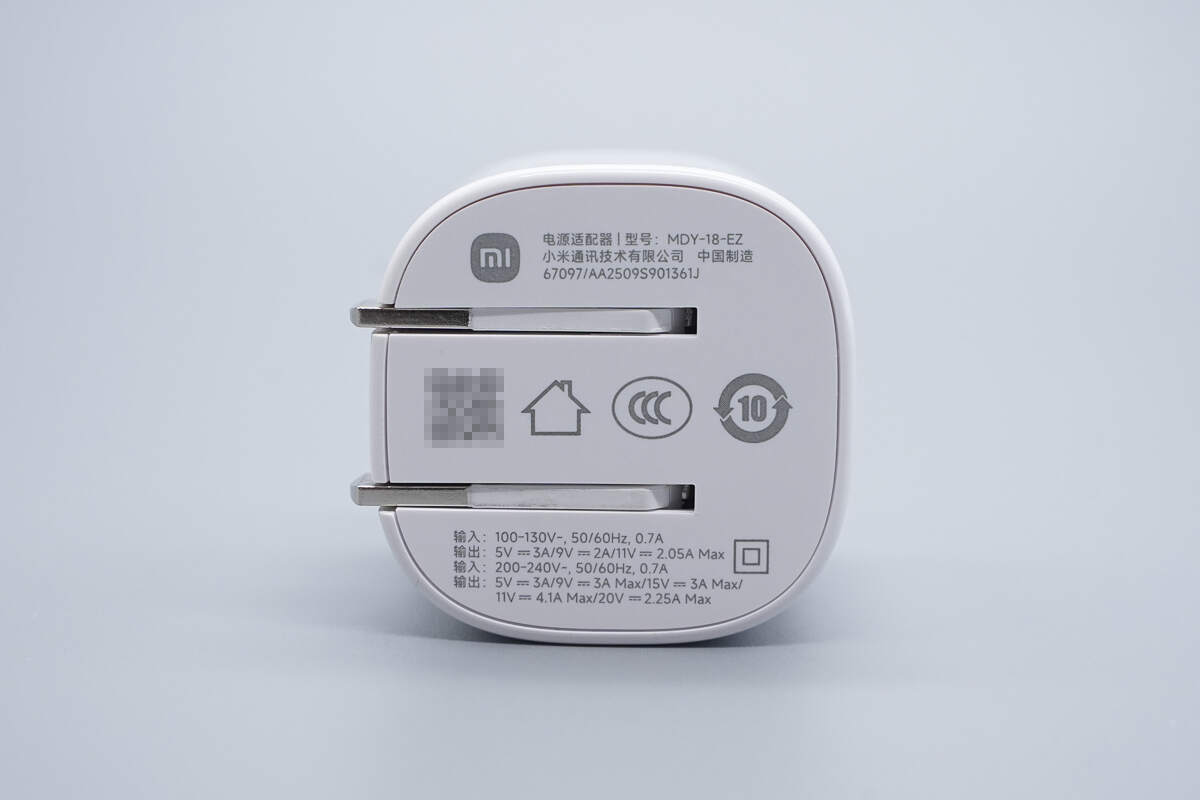
The input side of the casing is printed with the product specifications and shows that it has passed CCC certification.
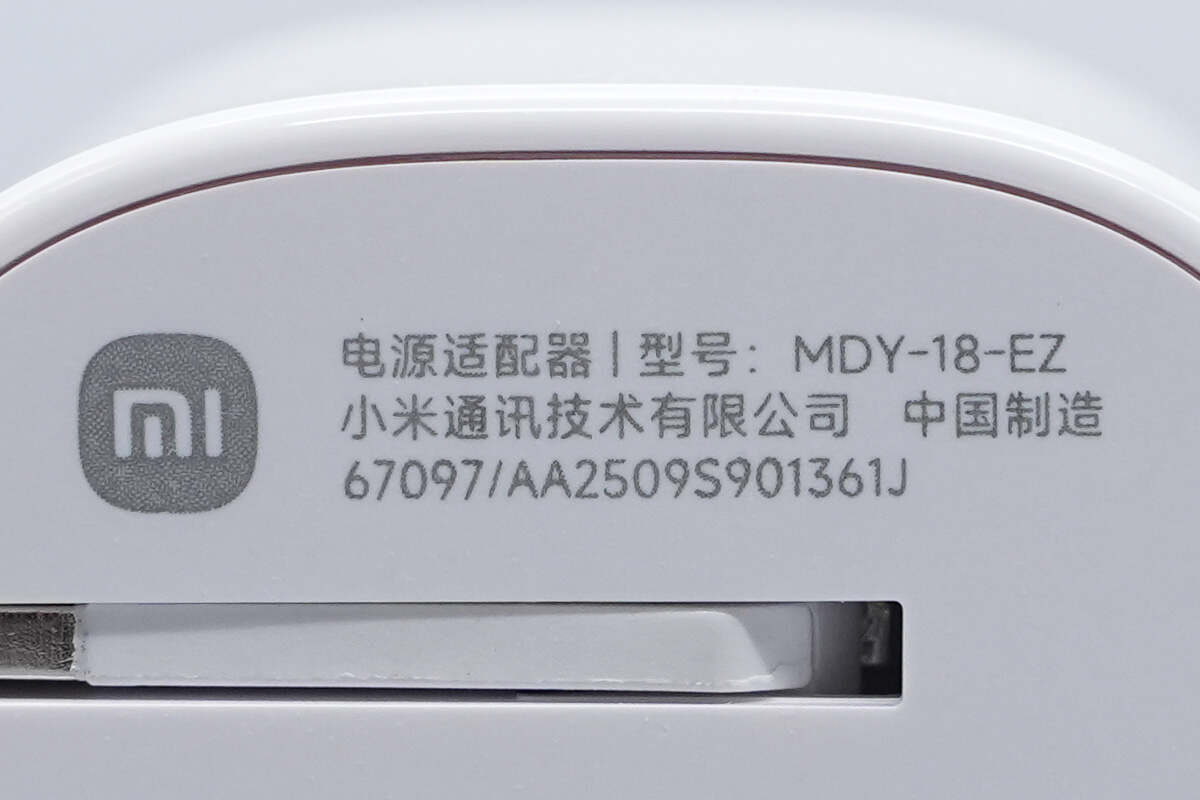
The model is MDY-18-EZ.
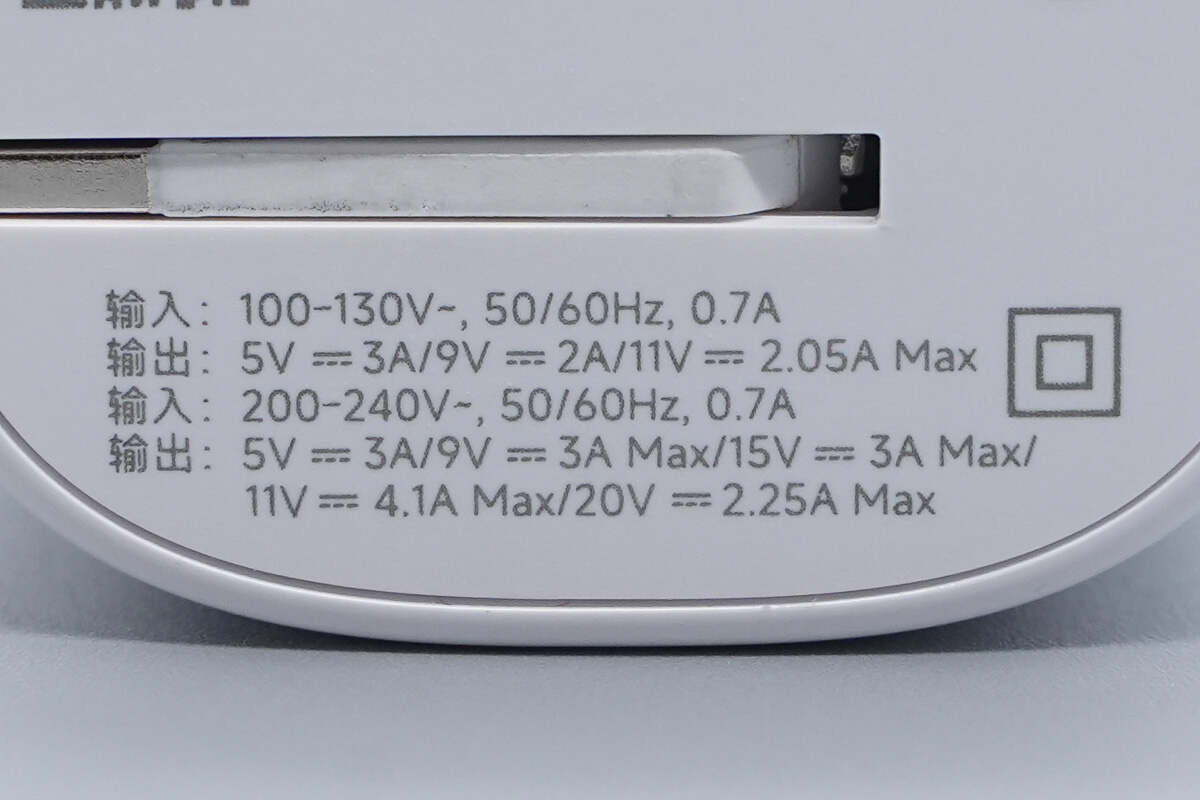
Input: 100–130V~50/60Hz 0.7A
Output: 5V⎓3A, 9V⎓2A, 11V⎓2.05A Max
Input: 200–240V~50/60Hz 0.7A
Output: 5V⎓3A, 9V⎓3A, 15V⎓3A, 11V⎓4.1A, 20V⎓2.25A Max
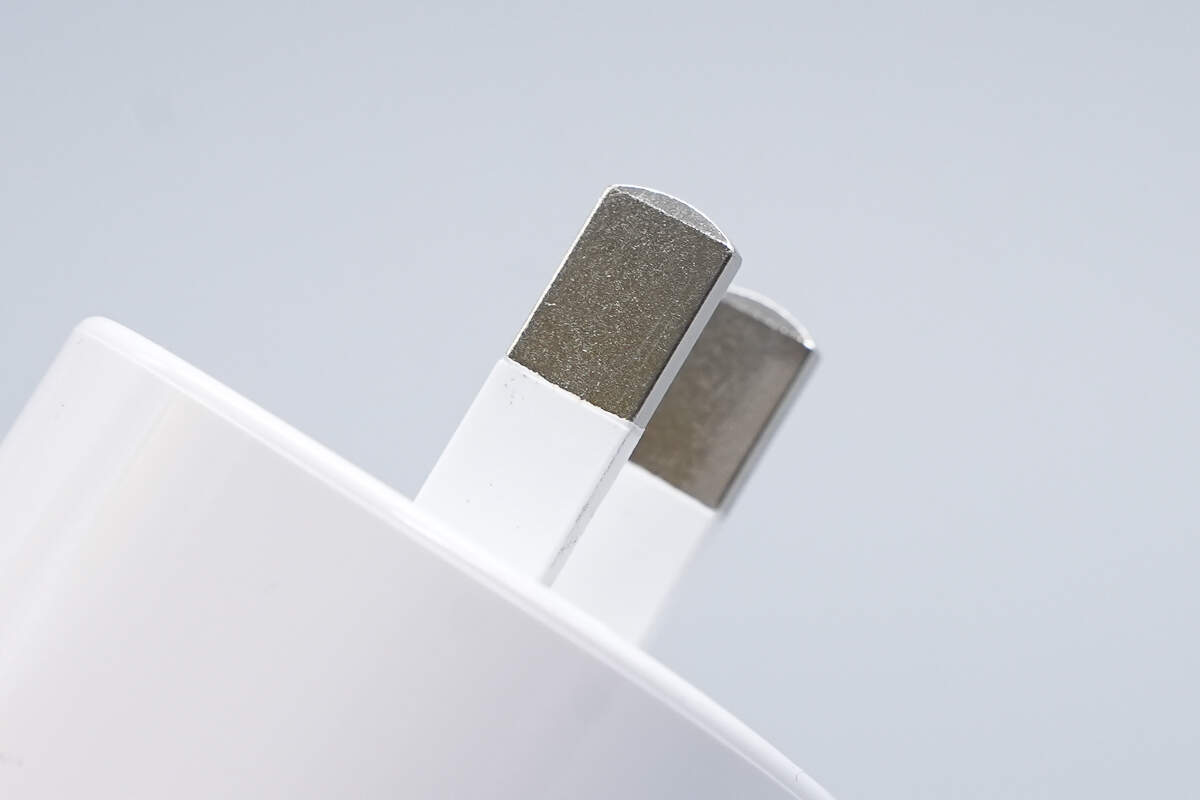
It comes with a foldable plug.

The top side features a USB-C port.

The height of the charger is about 35.38 mm (1.39 inches).

The width is about 34.43 mm (1.36 inches).

The thickness is about 34.34 mm (1.35 inches).
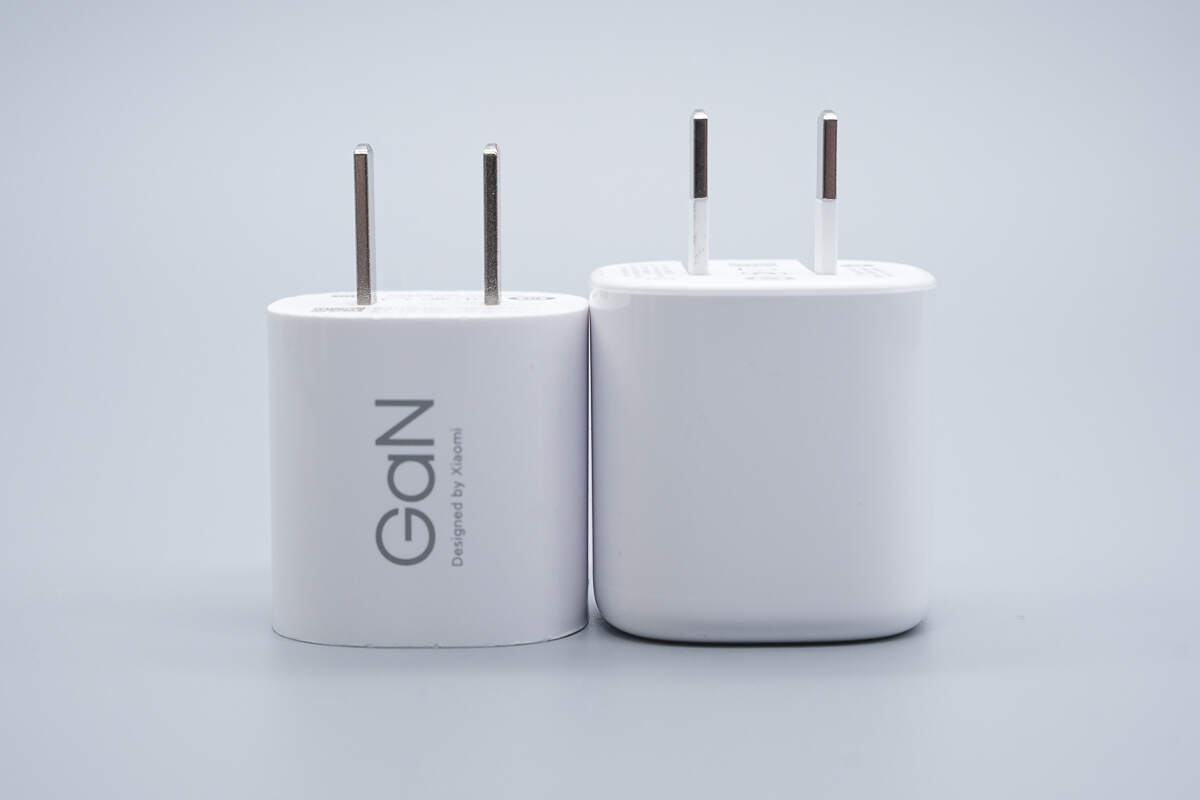
Compared side by side with the previous 45W Pudding Charger (left), the new model is slightly higher due to its foldable plug design.
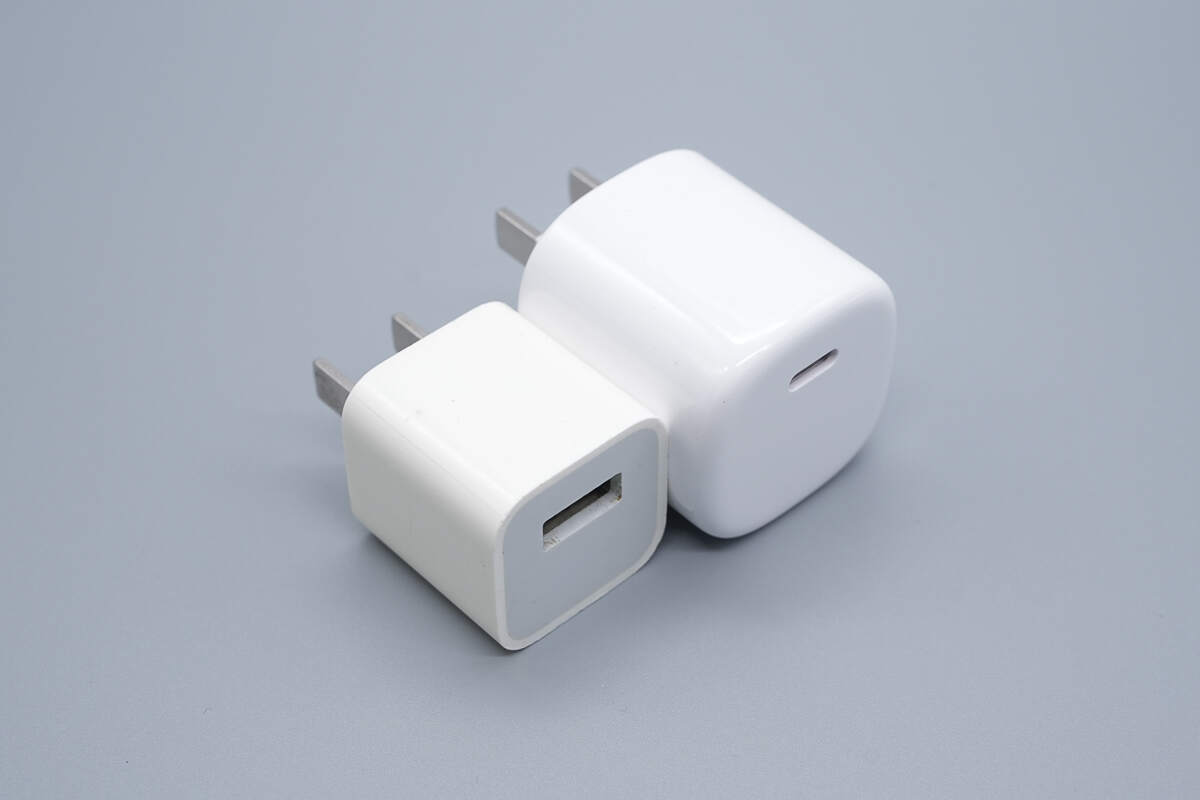
It is only slightly larger in size compared to the Apple 5W charger.
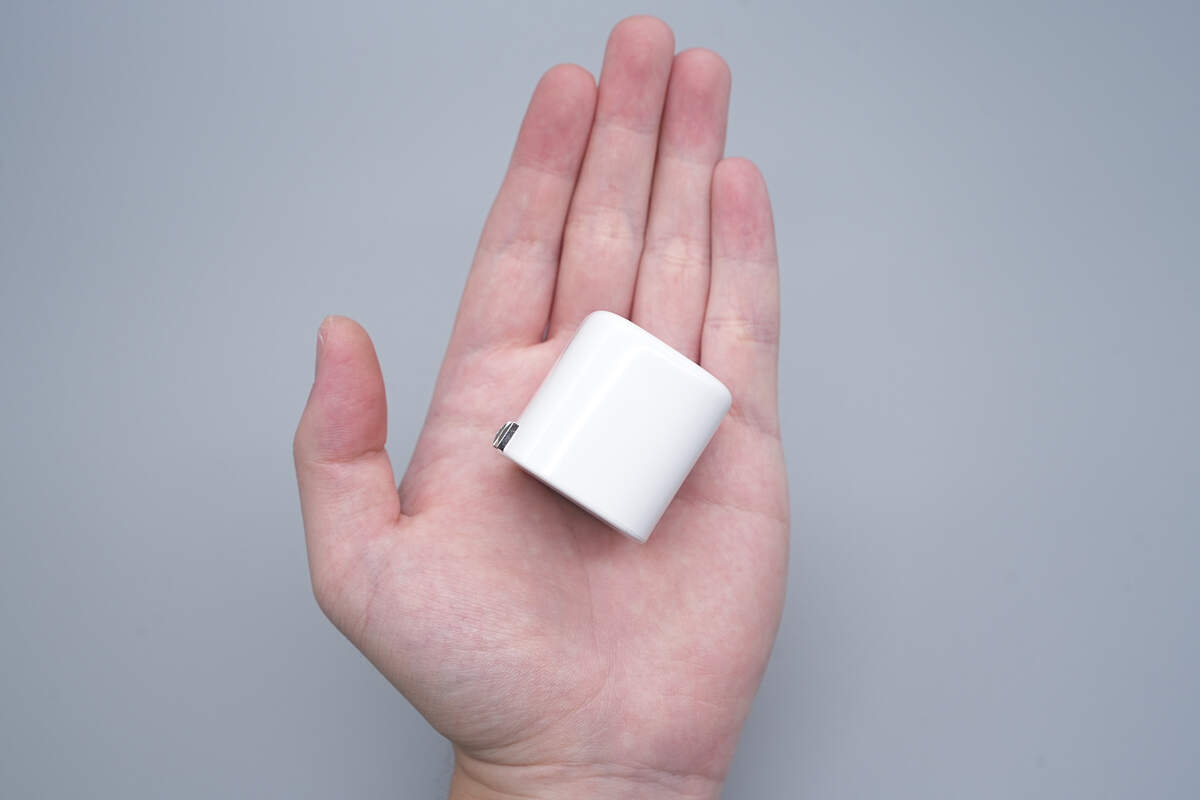
That's how big it is in the hand.
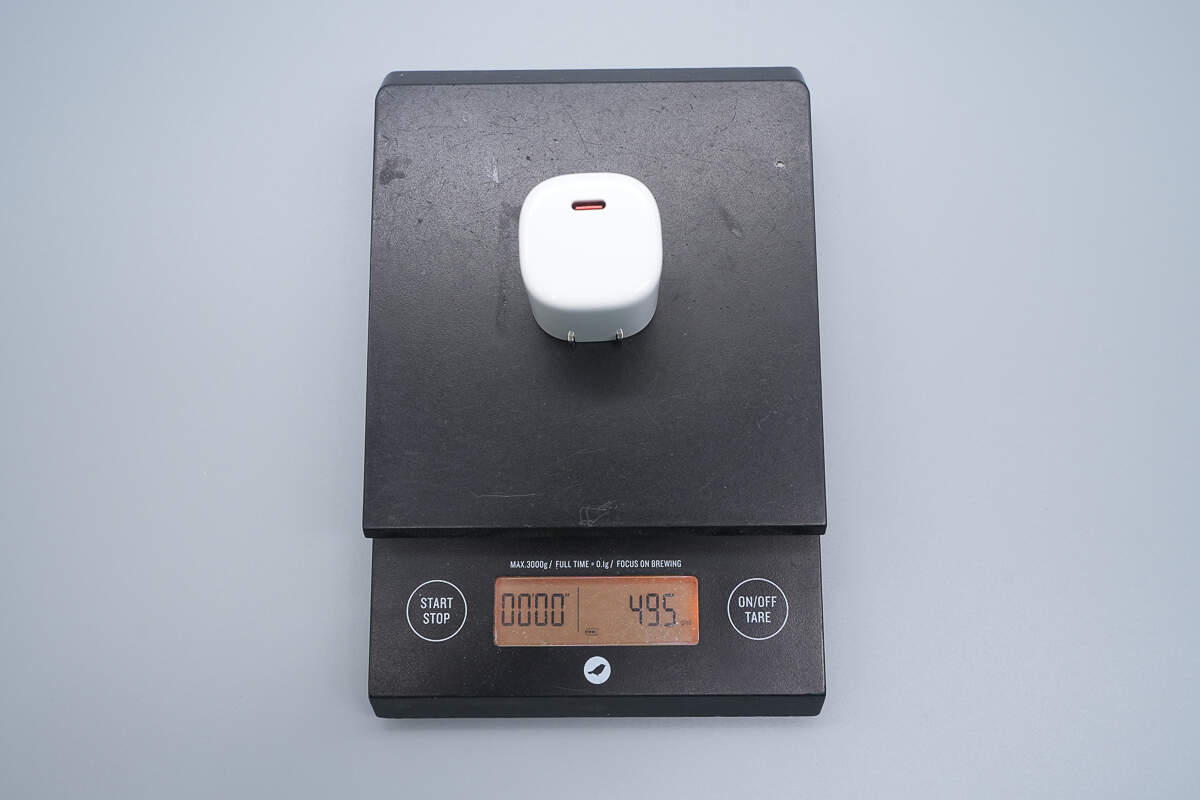
The weight is about 50 g (1.76 oz).
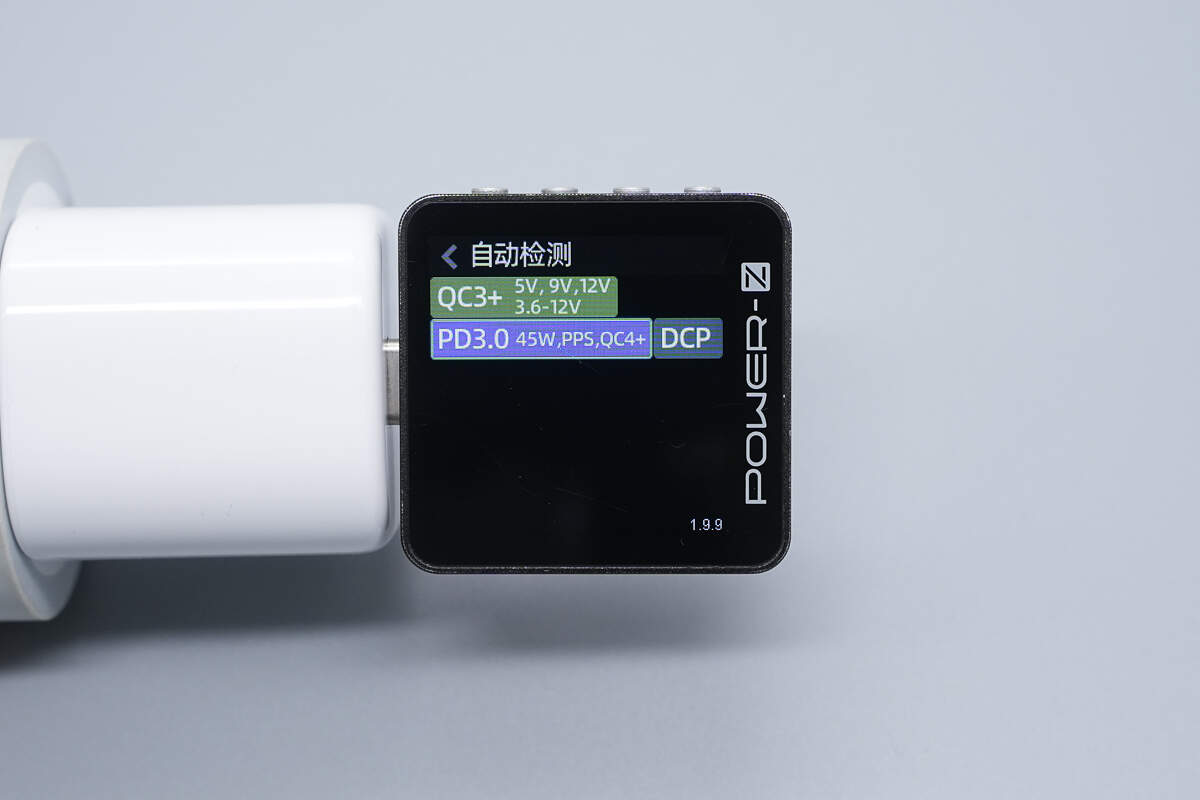
ChargerLAB POWER-Z KM003C shows that it supports QC3+/4+, PD3.0, PPS, and DCP protocols.
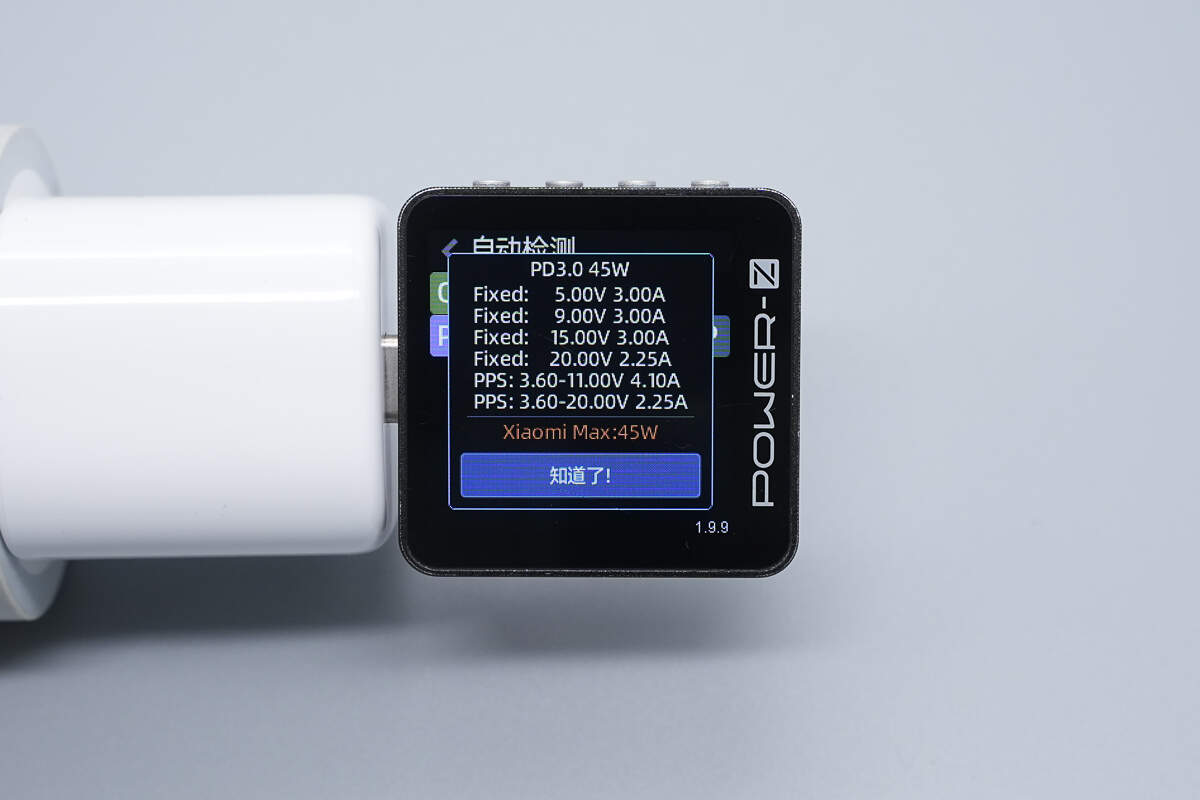
It has four fixed PDOs of 5V3A, 9V3A, 15V3A, and 20V2.25A. It also has two sets of PPS, which are 3.6-11V4.1A and 3.6-20V2.25A.

When using it to charge the Xiaomi 17 Pro Max, the charging power is about 36.1W.
Teardown
Next, let's take it apart to see its internal components and structure.
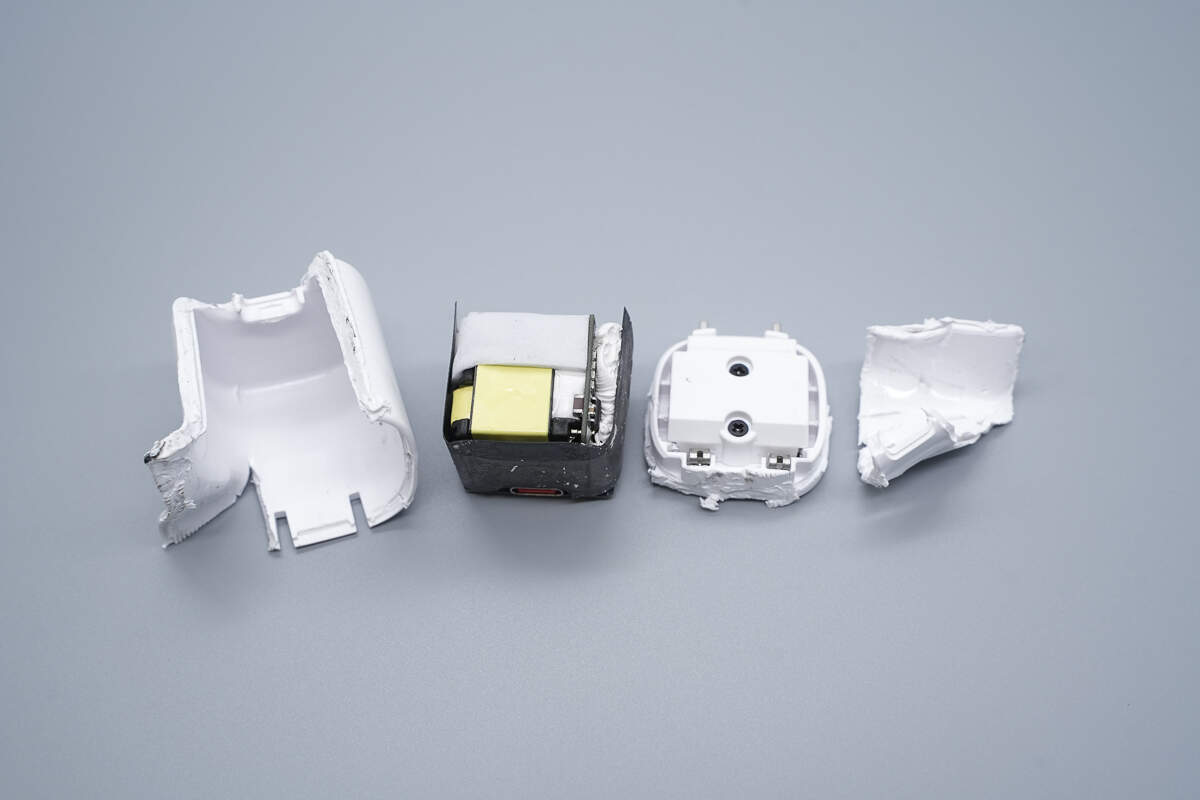
Cut open the casing, and remove the internal components.
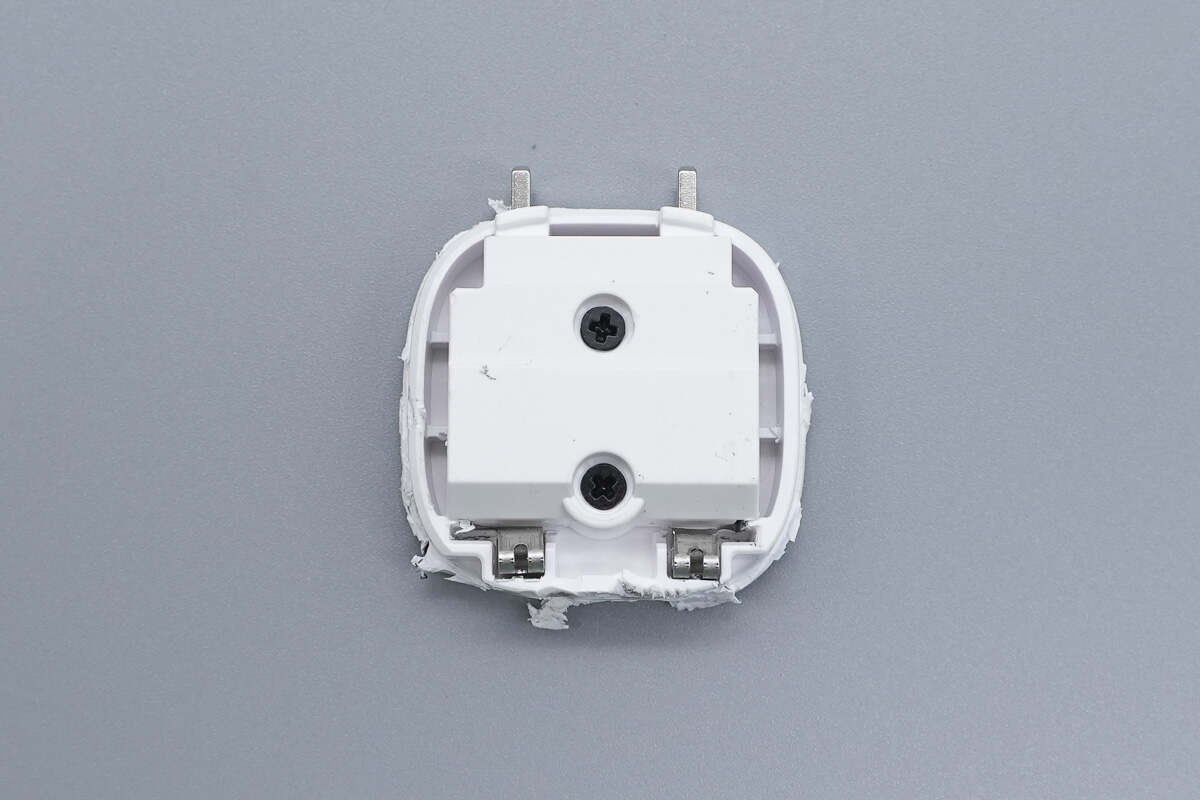
The plug is secured with a plastic housing and screws, making electrical contact with the PCBA module through metal spring contacts.
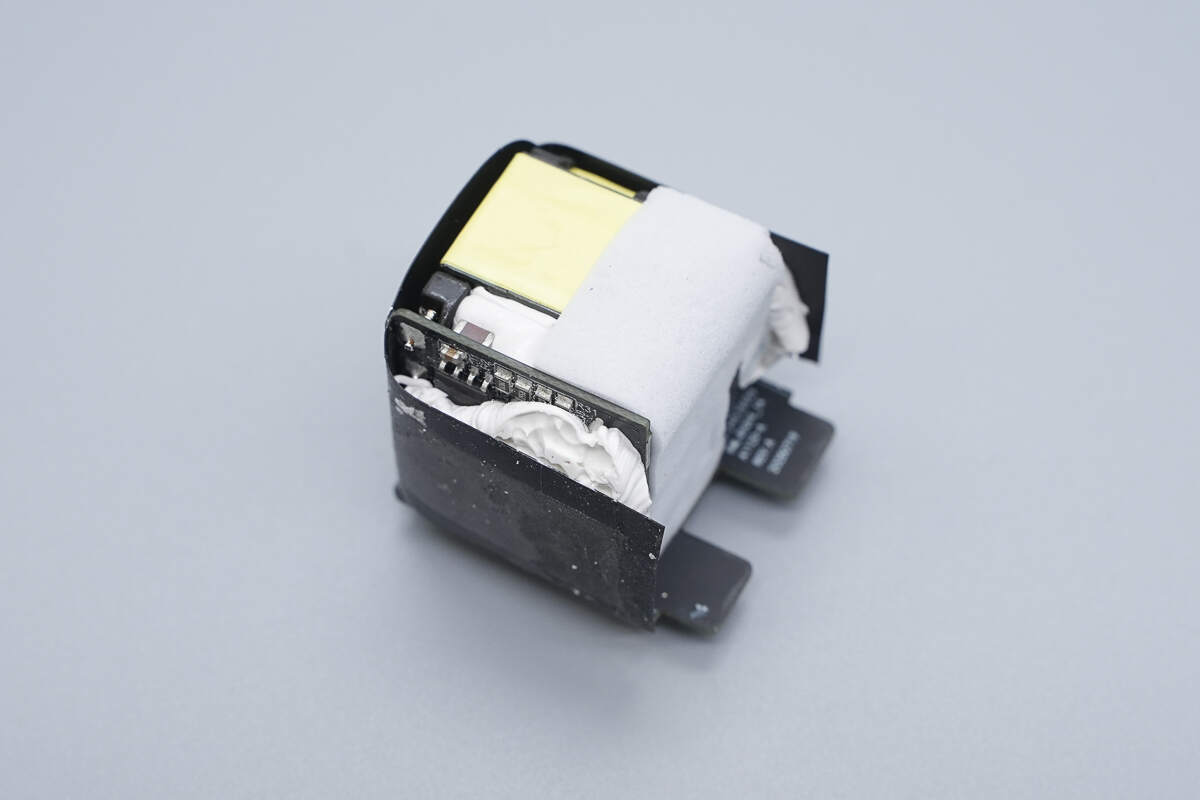
The input side of the PCBA module is covered with a white foam pad, while the sides and output end are wrapped with a graphite thermal insulation sheet.
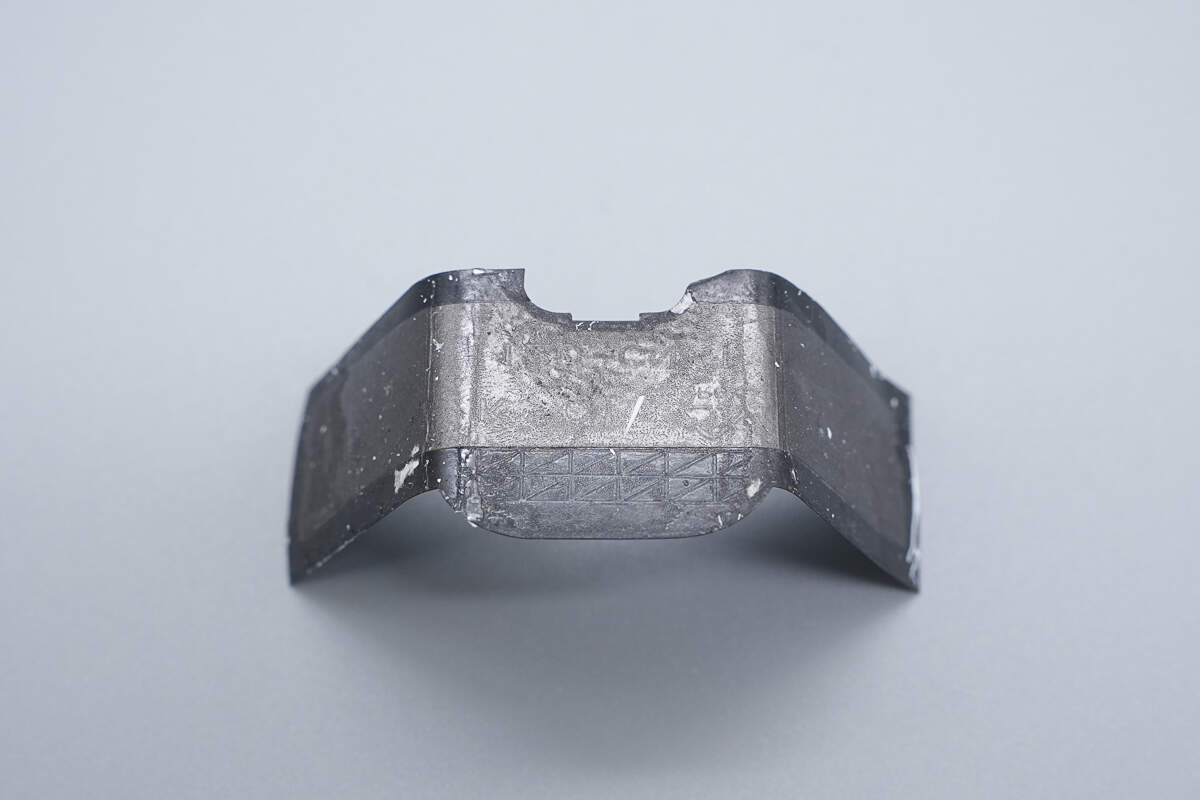
Close-up of the graphite thermal insulation sheet.
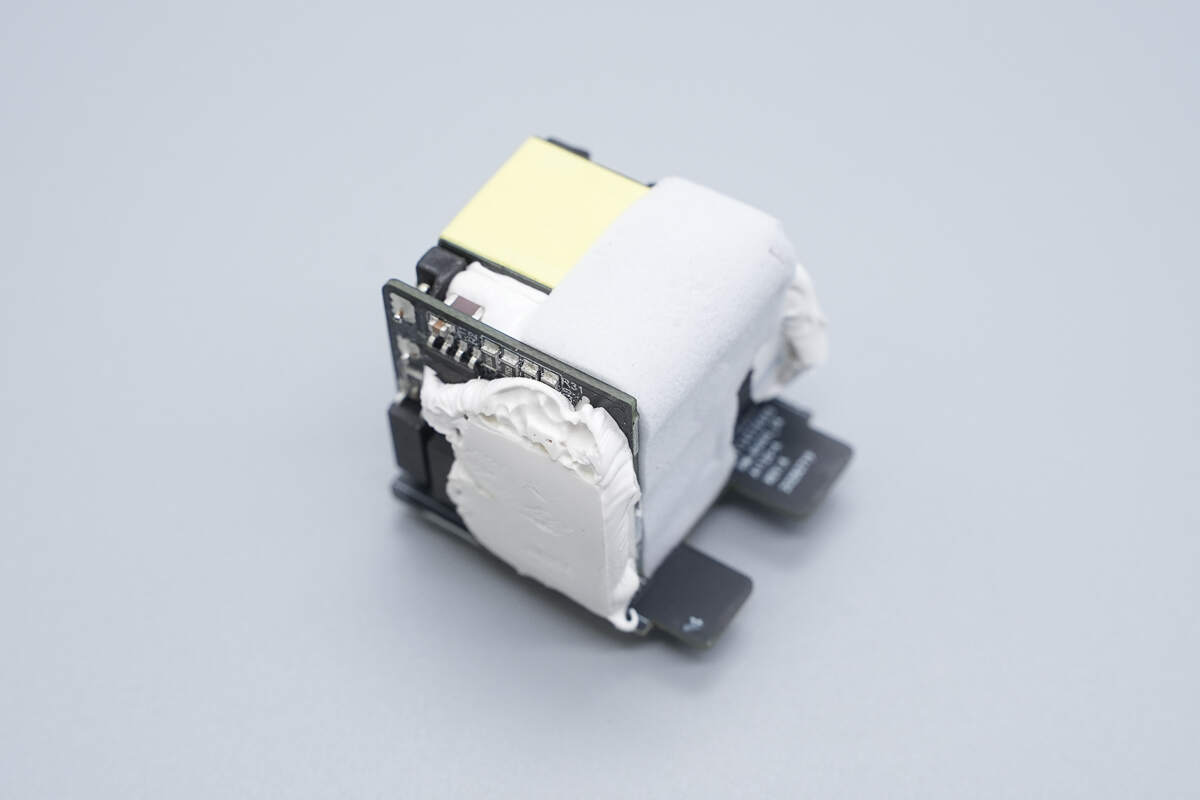
The back of the small side PCB, as well as the area around the transformer and other components, is reinforced with white adhesive.
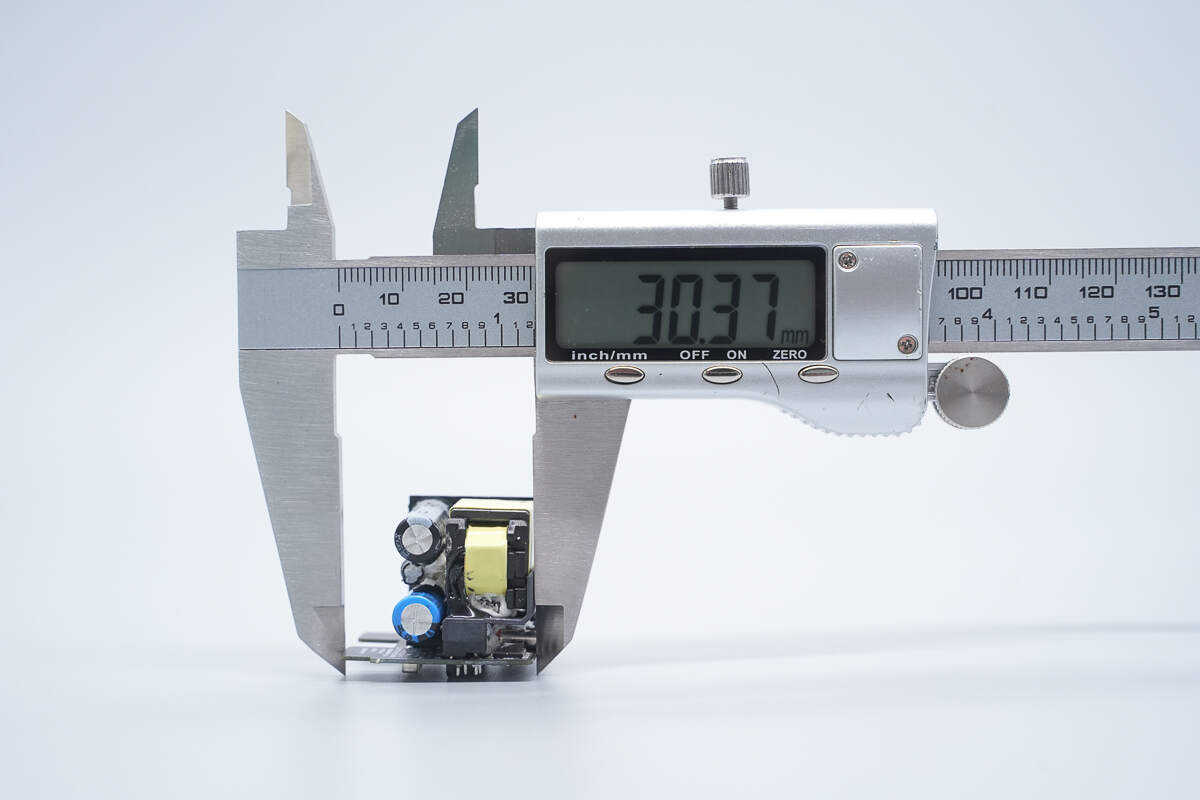
The length of the PCBA module is about 30.37 mm (1.2 inches).
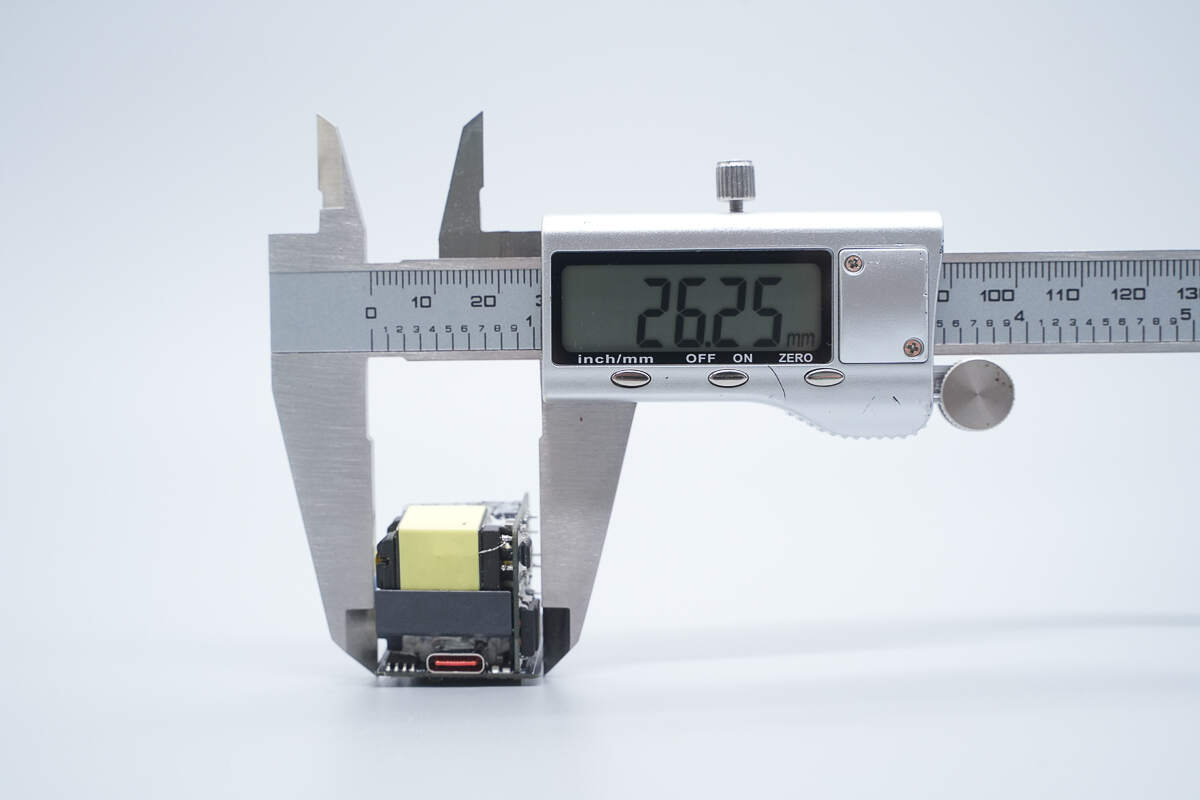
The width is about 26.25 mm (1.033 inches).
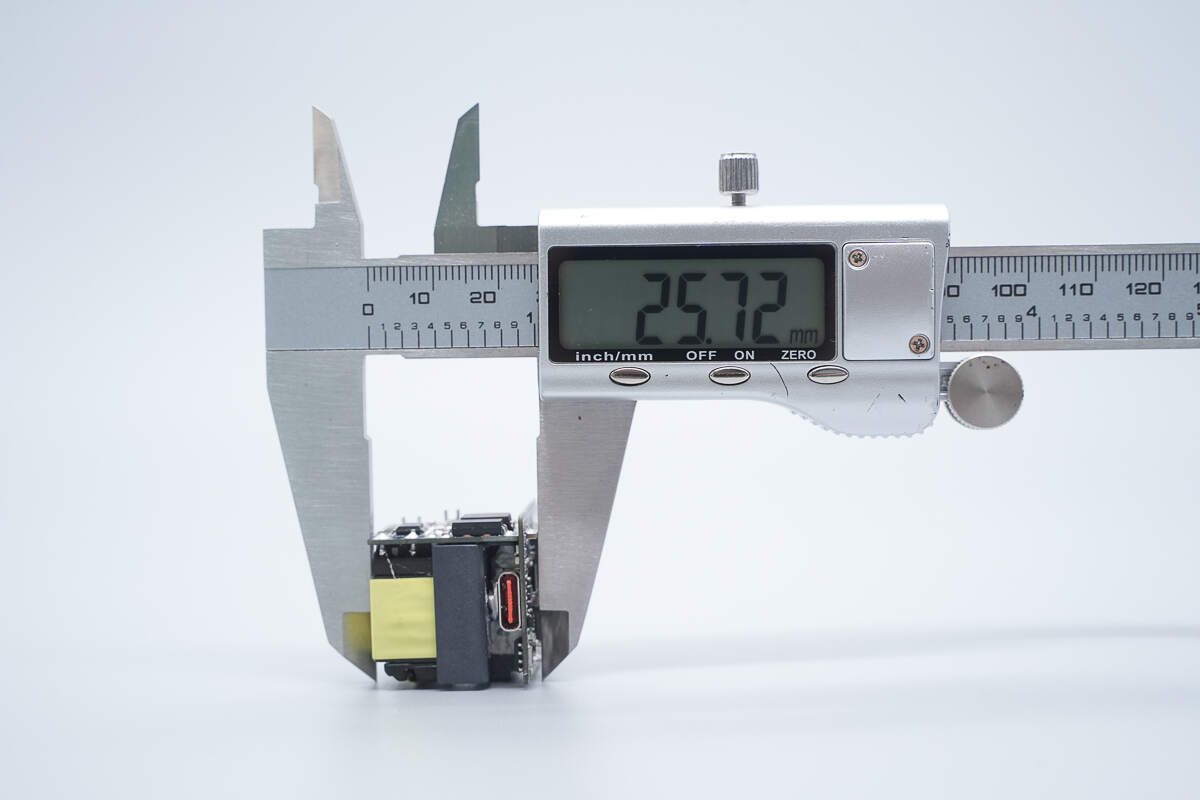
The thickness is about 25.72 mm (1.013 inches).

The small side PCB features an I-shaped inductor and two high-voltage filter electrolytic capacitors.
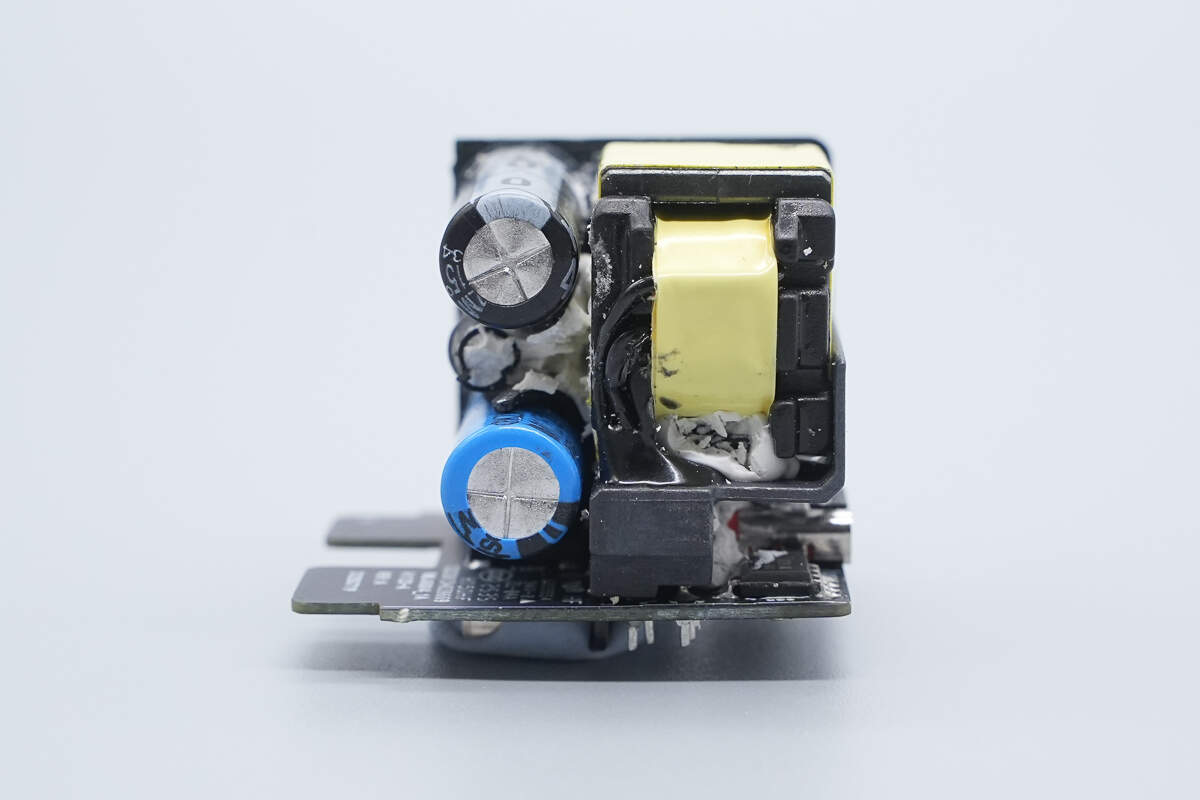
The front side of this small PCB also houses a transformer.
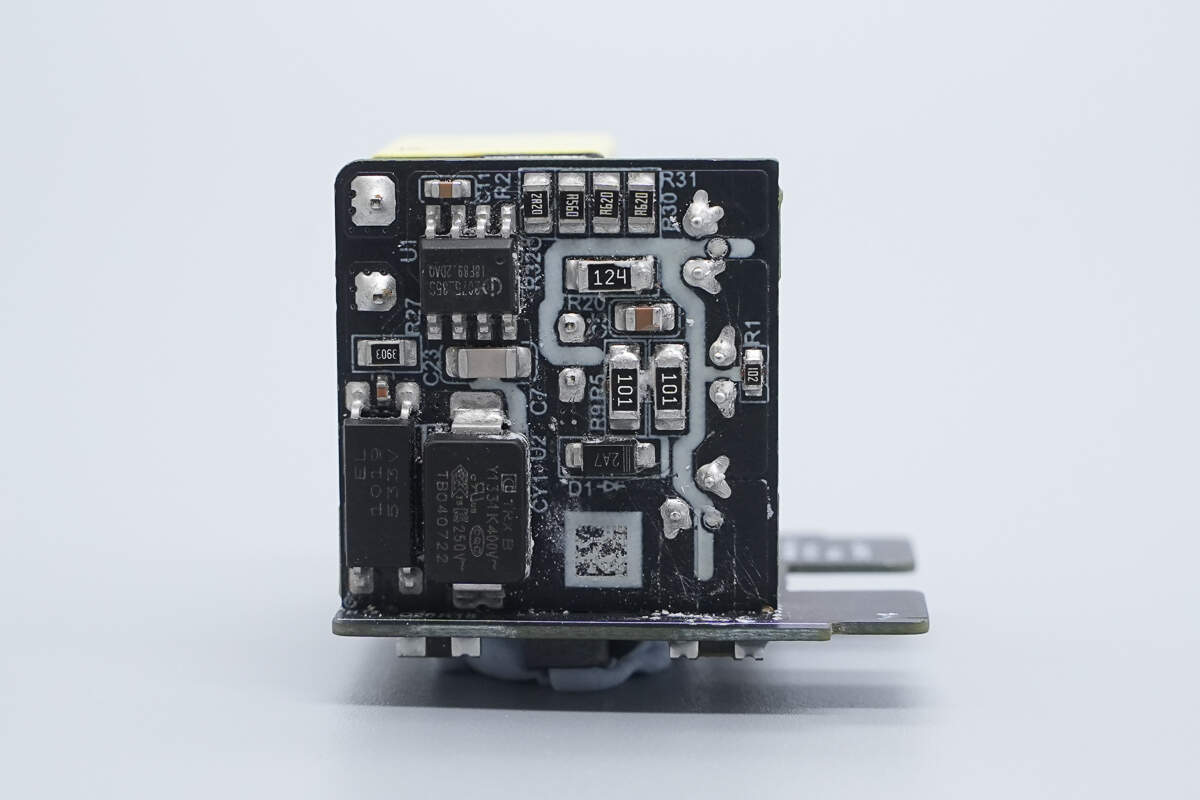
This side is equipped with the master control chip, an optocoupler, and an SMD Y capacitor.
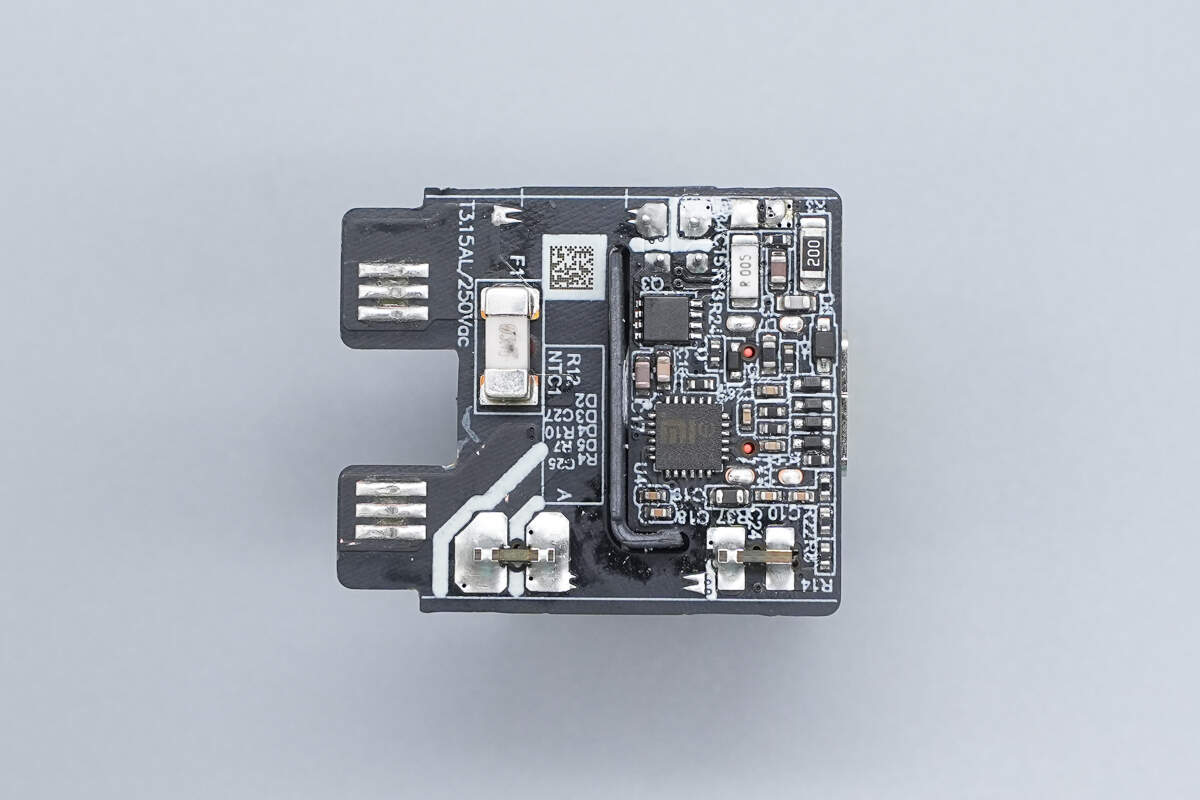
This side is equipped with an SMD fuse, a protocol chip, and the output VBUS MOSFET.
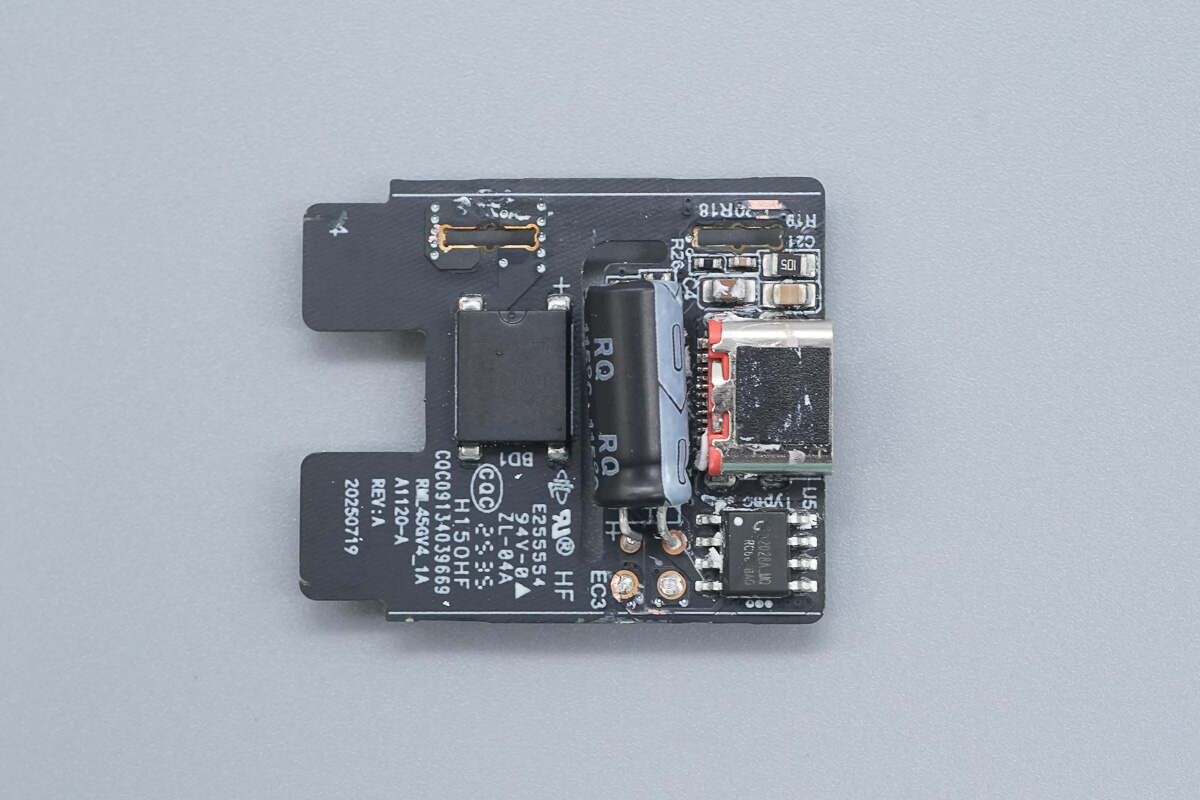
The front side of the main PCB features a bridge rectifier, a synchronous rectifier controller, and a solid capacitor for output filtering.
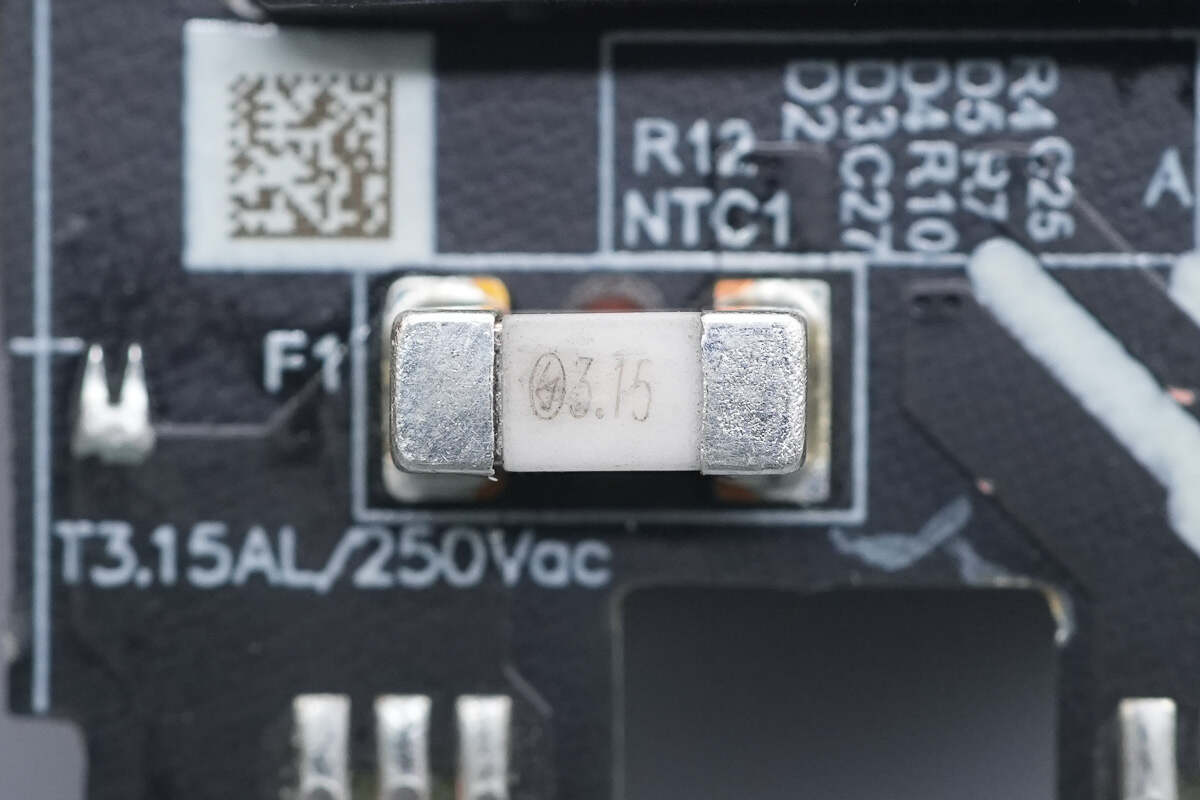
The SMD fuse is from Betterfuse, with a rated current of 3.15 A.
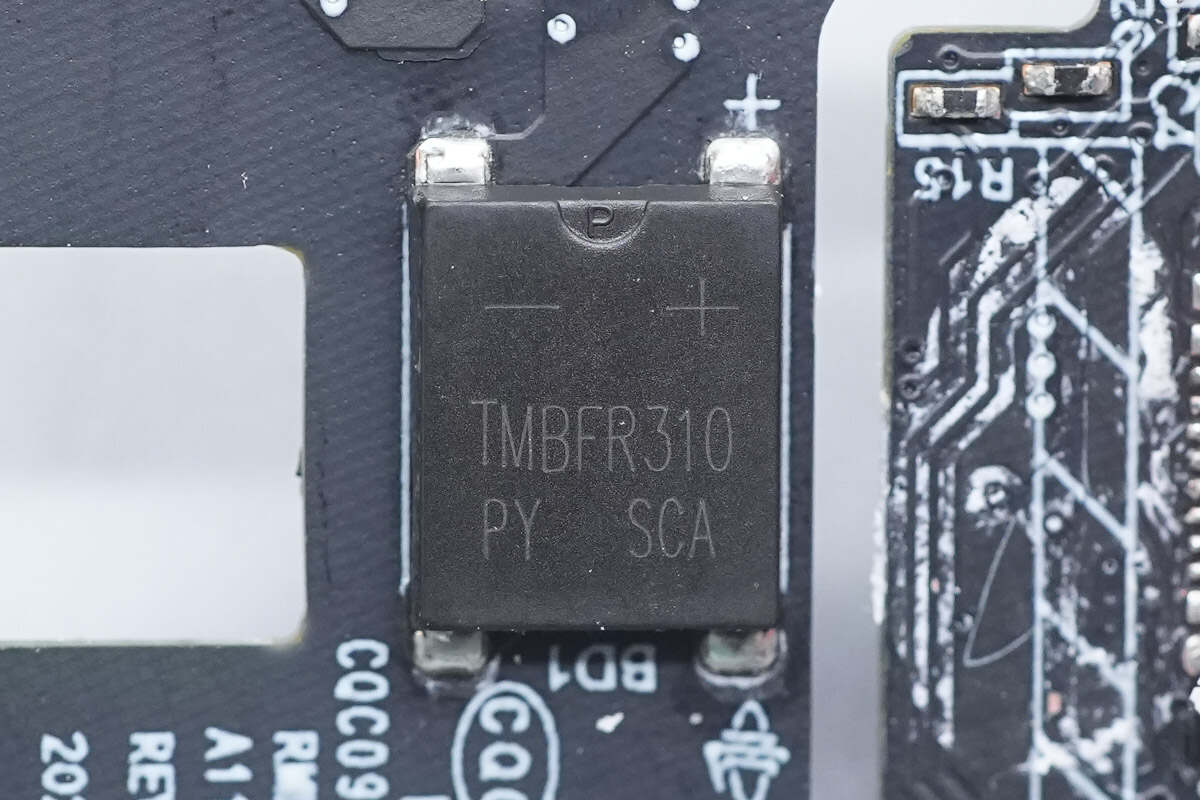
The bridge rectifier is from Pingwei, model TMBFR310, rated at 3 A 1000 V, and comes in a TMBF package.
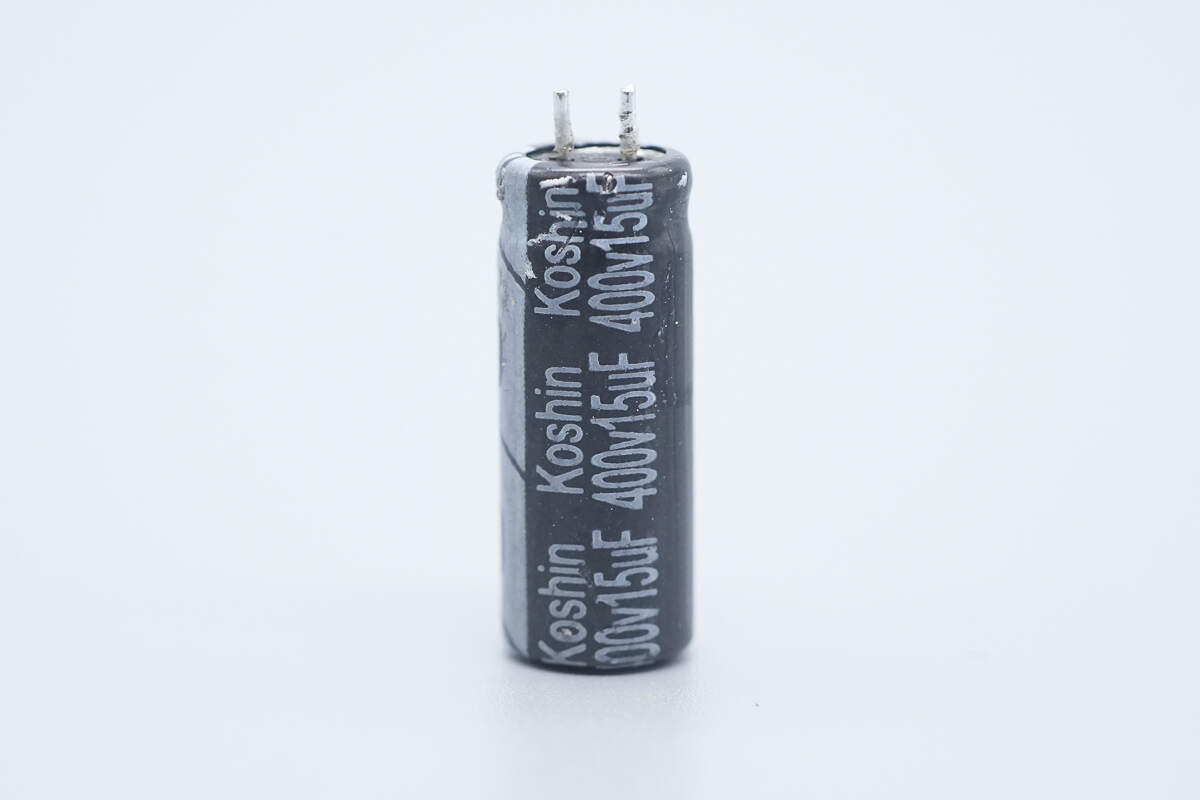
The high-voltage filter electrolytic capacitor is from Koshin, rated at 400 V 15 μF.
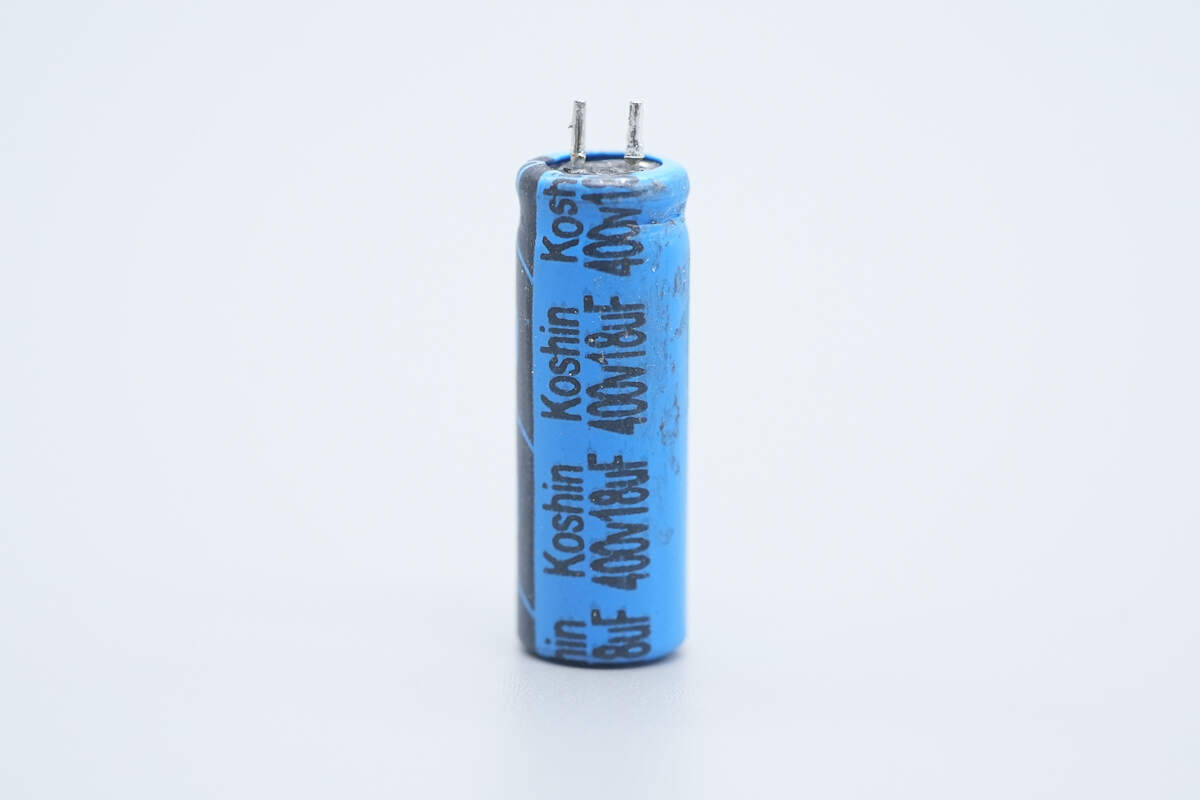
The other capacitor is also from Koshin, rated at 400 V 18 μF.
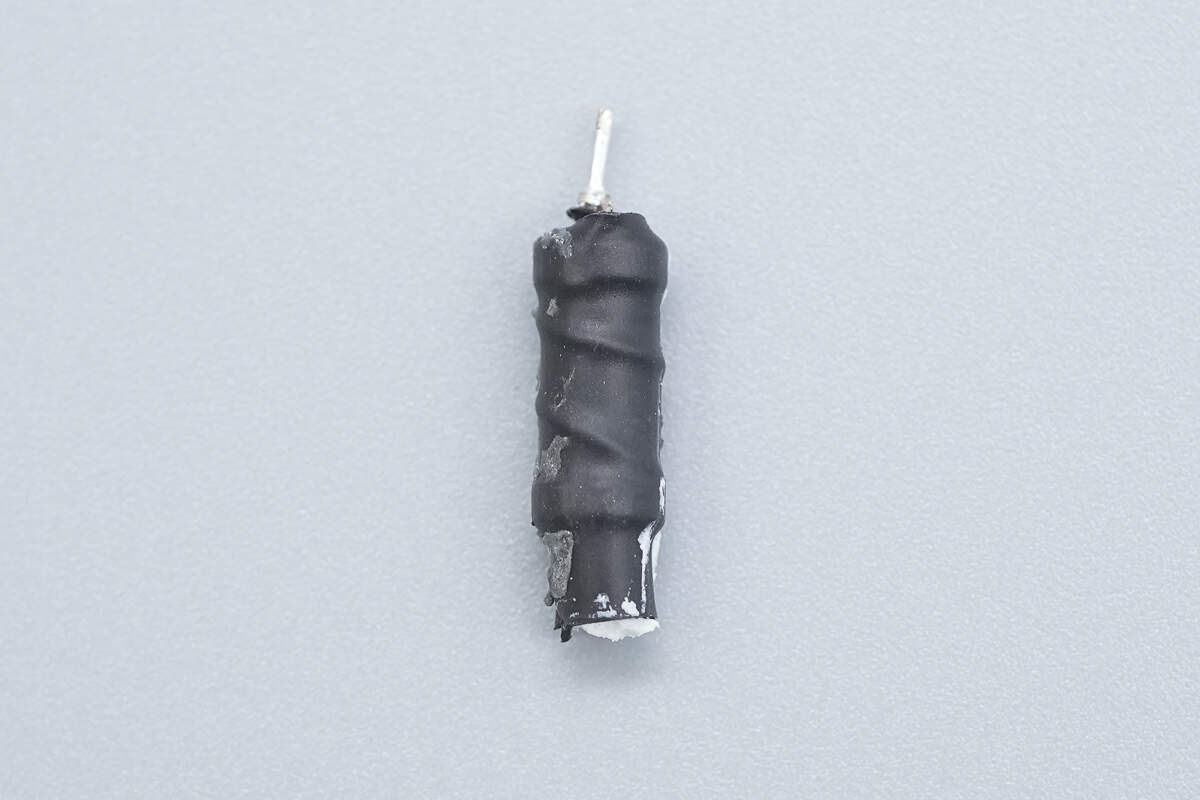
The I-shaped inductor is insulated and protected with a heat-shrink sleeve.
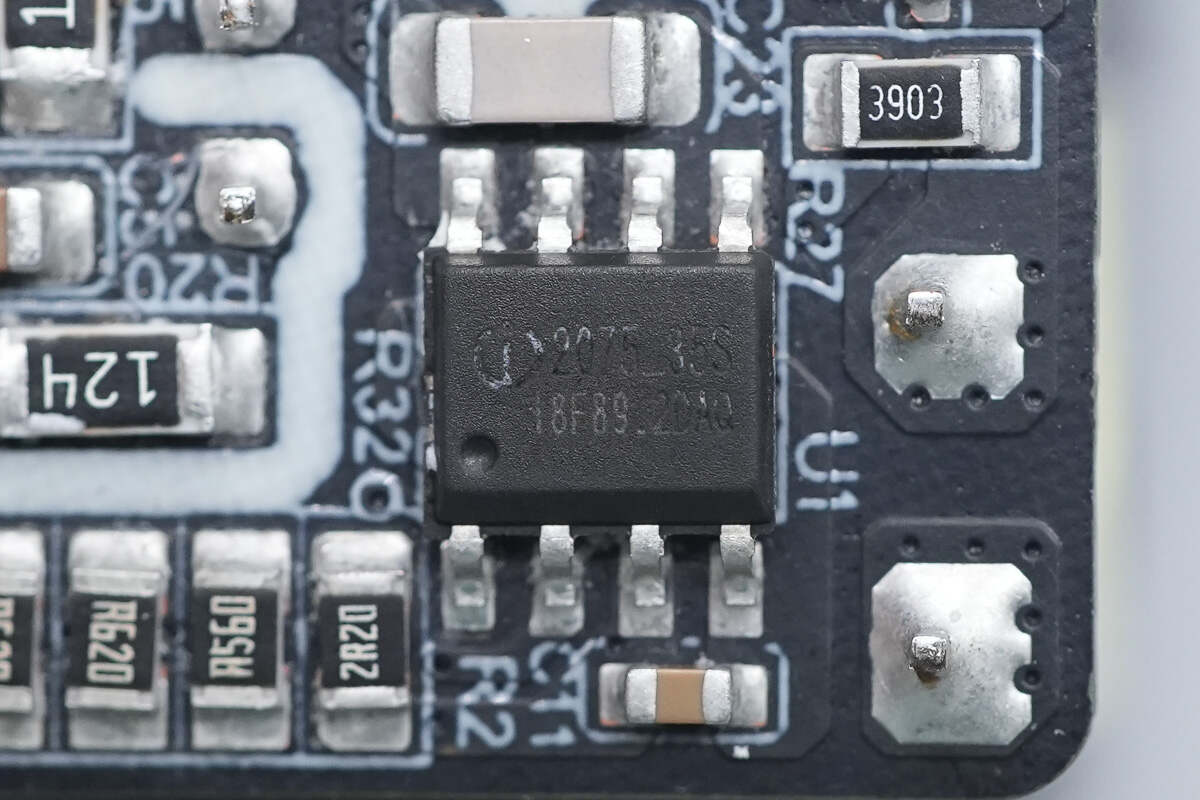
The power management IC is from Injoinic, model IP2075_35S. It is a high-performance offline AC/DC primary-side flyback controller with an integrated GaN FET, featuring adaptive multi-mode control (MMC) and secondary-side regulation (SSR). It is designed for applications requiring high power density and precise output voltage/current.
The IP2075_35S combines frequency foldback and valley-fill conduction technologies to reduce switching losses and achieve high efficiency. Frequency modulation is incorporated to significantly lower EMI emissions and common-mode noise. It offers a wide adaptive switching frequency range to improve light-load efficiency, with an optimized maximum operating frequency to minimize device temperature and enhance full-load efficiency. The minimum peak current is also carefully optimized to balance standby power consumption and audible noise.
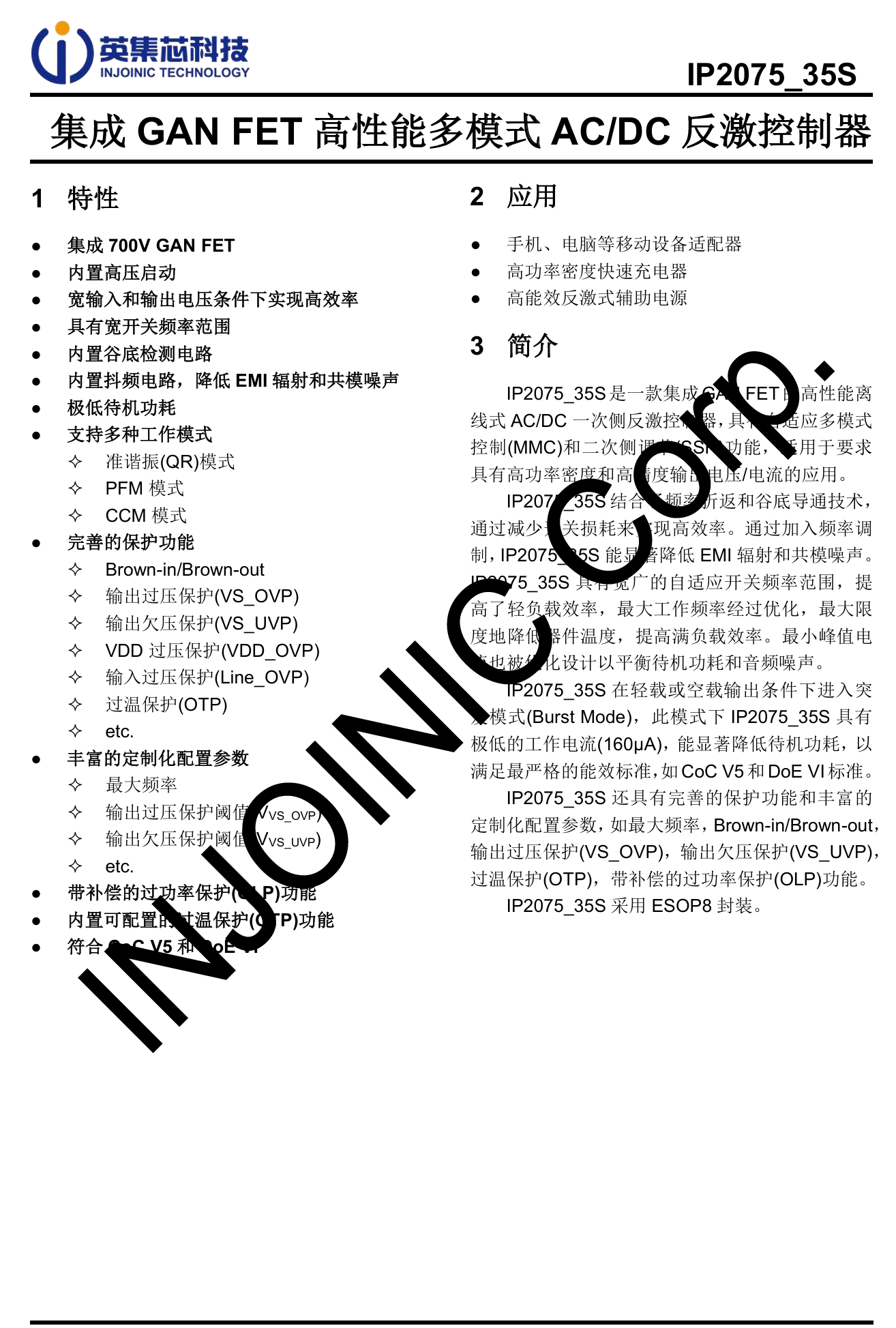
Under light-load or no-load conditions, the IP2075_35S enters Burst Mode, during which the chip operates with an extremely low current of 160 µA. This significantly reduces standby power consumption, enabling compliance with stringent energy efficiency standards such as CoC V5 and DoE VI.
The IP2075_35S also offers comprehensive protection features and a wide range of configurable parameters, including maximum frequency, brown-in/brown-out detection, output over-voltage protection (VS_OVP), output under-voltage protection (VS_UVP), over-temperature protection (OTP), and compensated over-power protection (OLP). The chip comes in an ESOP8 package.
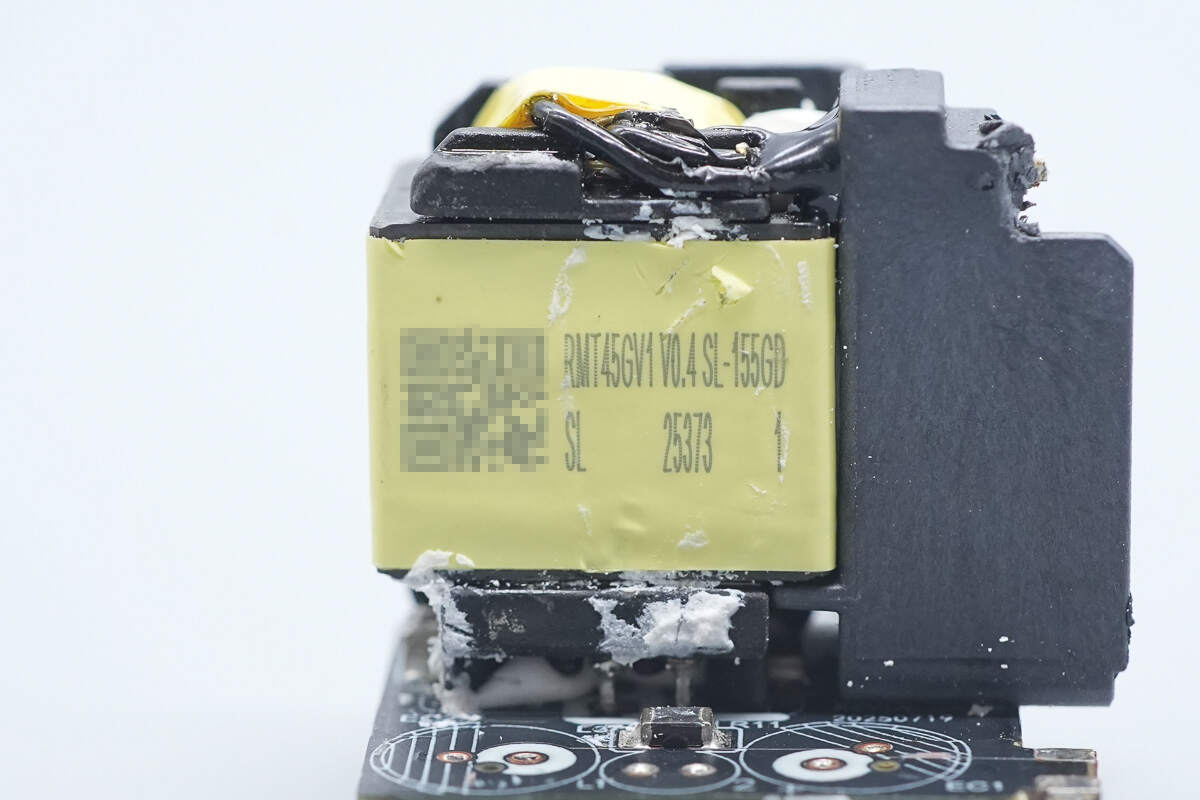
Close-up of the transformer.
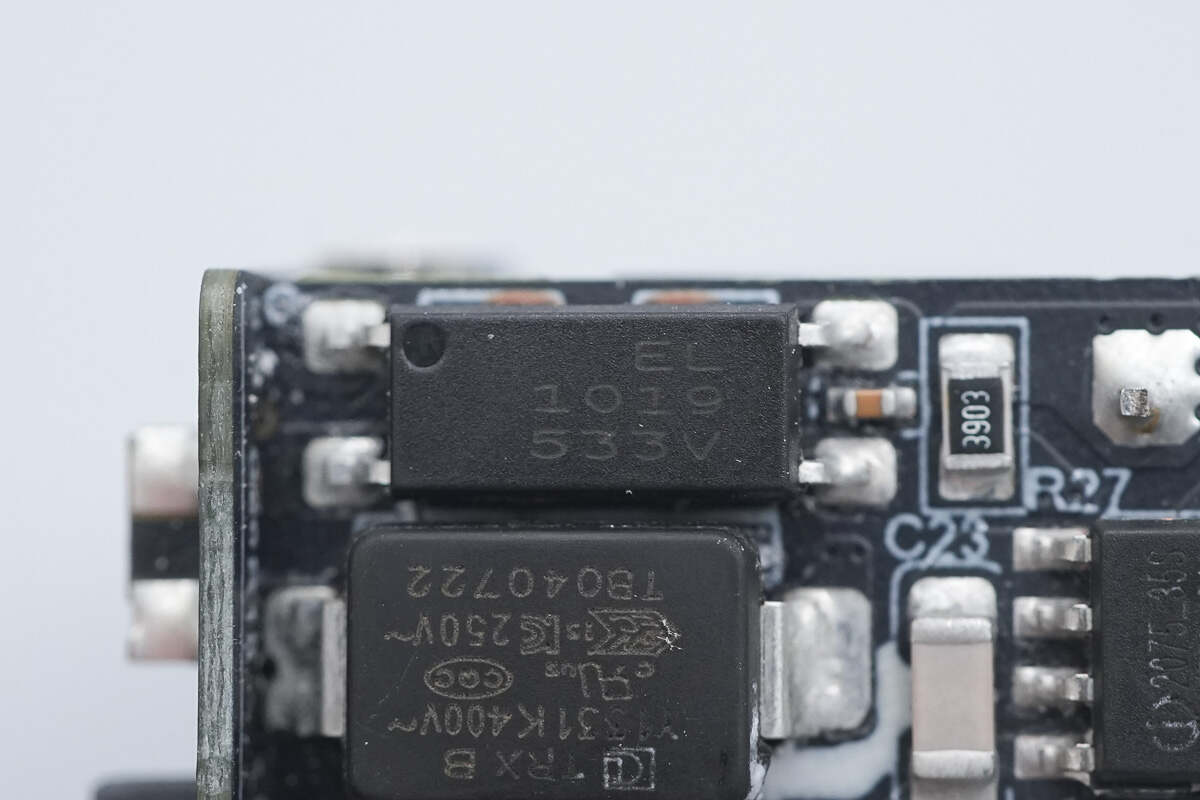
The Everlight EL 1019 optocoupler is used for output voltage feedback.
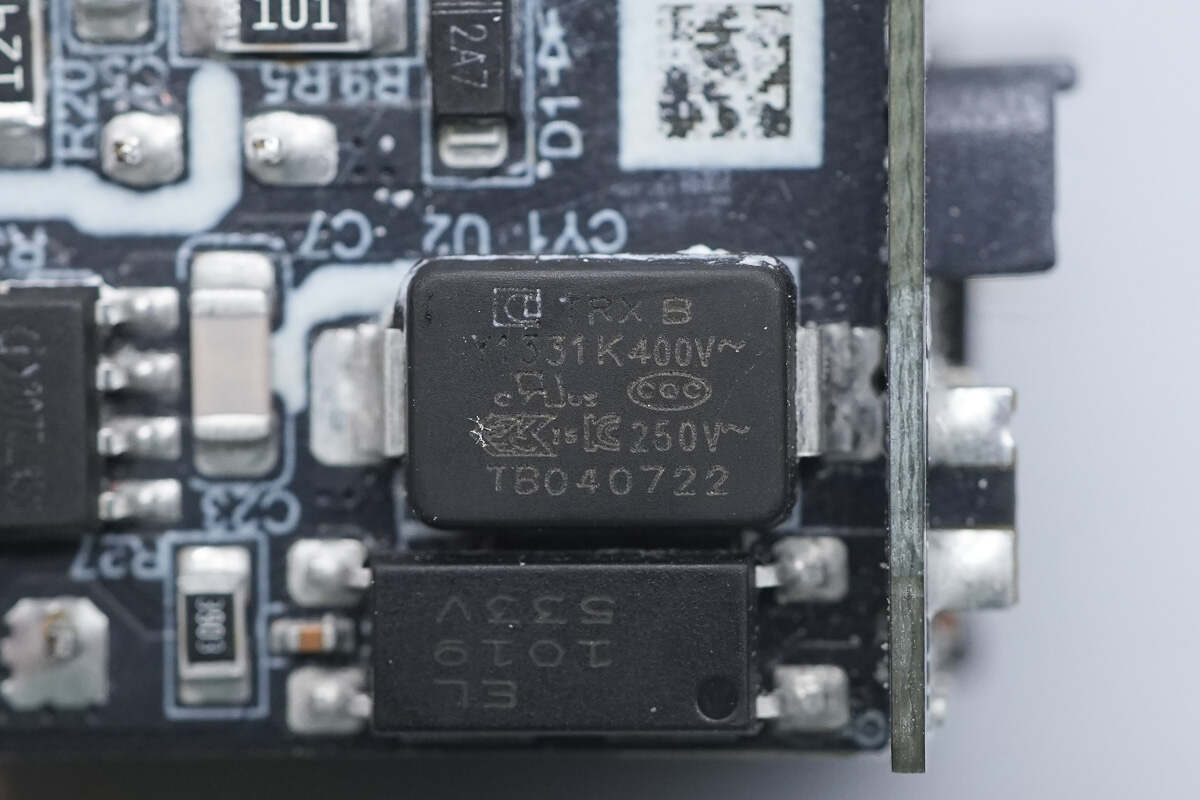
The SMD Y capacitor is from TRX, model TMY1331K. Its compact size and light weight make it well-suited for high-density power products such as GaN fast chargers.
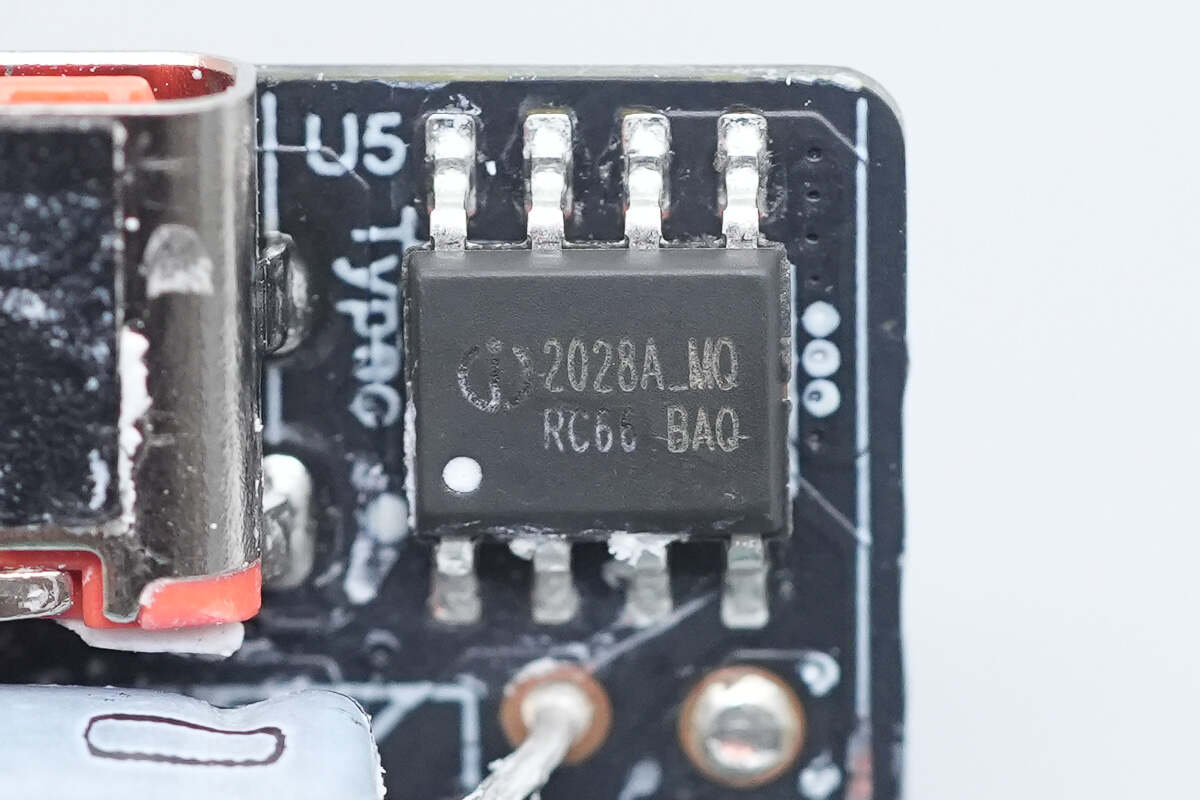
The synchronous rectifier controller is from Injoinic, model IP2028A_MQ. It is a synchronous rectification controller with an integrated 100 V/10 mΩ MOSFET, capable of replacing Schottky diodes in high-efficiency flyback power supplies. By monitoring the drain-to-source voltage of the synchronous rectifier (SR) MOSFET, the chip can generate optimal drive signals to turn the MOSFET on or off. Using synchronous rectification effectively reduces the power loss of the secondary-side rectifier, achieving higher efficiency, lower temperature rise, and increased power density. With minimal external components, the IP2028A_MQ provides a high-performance solution for output voltages ranging from 3.3 V to 28 V.
The IP2028A_MQ does not require auxiliary winding power; its internal voltage regulation circuitry generates the necessary supply voltage. This makes it suitable for chargers with low output voltage requirements or adapters using a high-side synchronous rectification scheme. Its sleep mode functionality also enables zero-standby-power operation.
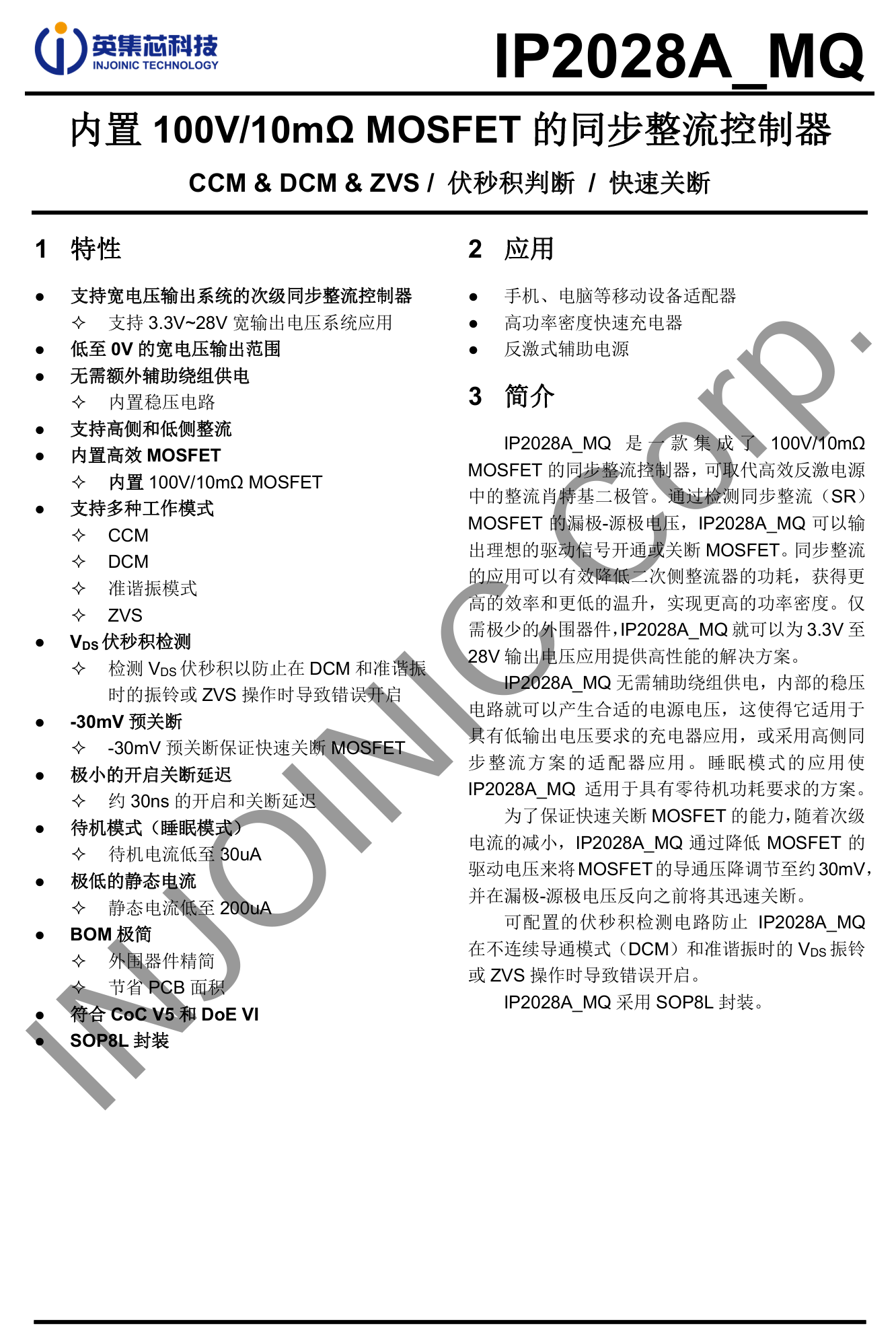
To ensure rapid MOSFET turn-off, the IP2028A_MQ adjusts the MOSFET’s on-state voltage drop to approximately 30 mV by lowering the drive voltage as the secondary current decreases, quickly turning off the MOSFET before the drain-to-source voltage reverses. A configurable volt-second detection circuit prevents false MOSFET turn-on during discontinuous conduction mode (DCM) or quasi-resonant VDS ringing/ZVS operations. The chip comes in an SOP8L package.
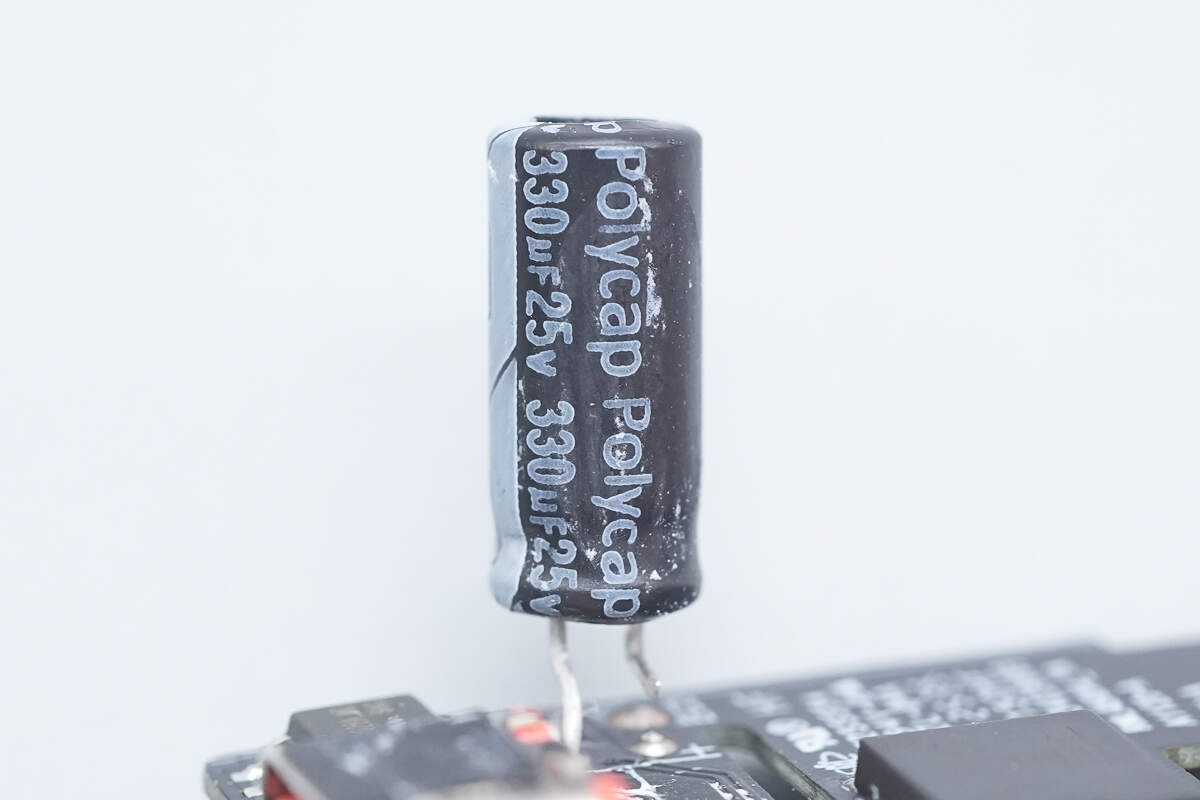
The solid capacitor for output filtering is from PolyCap, rated at 25 V 330 μF.
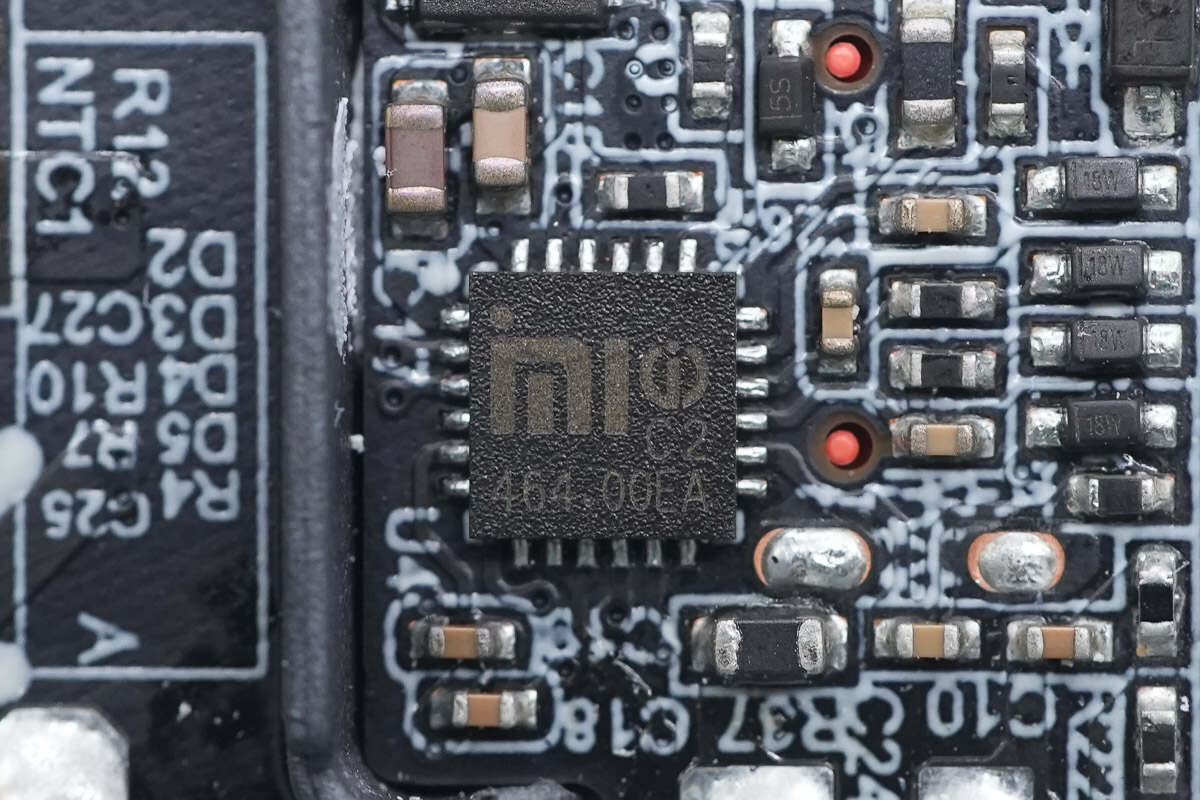
The protocol chip is a Xiaomi-customized model from Injoinic. It bears both the Xiaomi and Injoinic logos and is marked with “C2.”
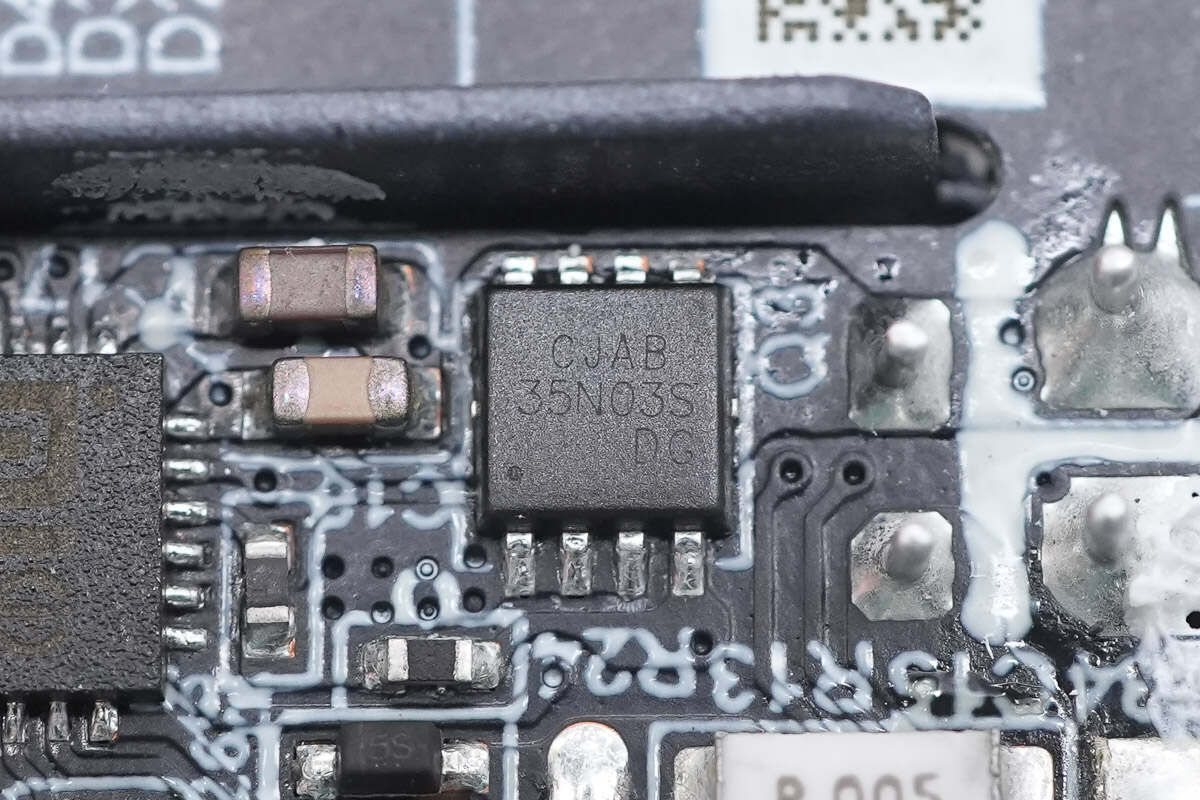
The VBUS MOSFET is from JSCJ, model CJAB35N03S. It is an N-channel MOSFET with a voltage rating of 30 V and an on-resistance of 5.2 mΩ, housed in a PDFNWB 3.3 × 3.3‑8L package.
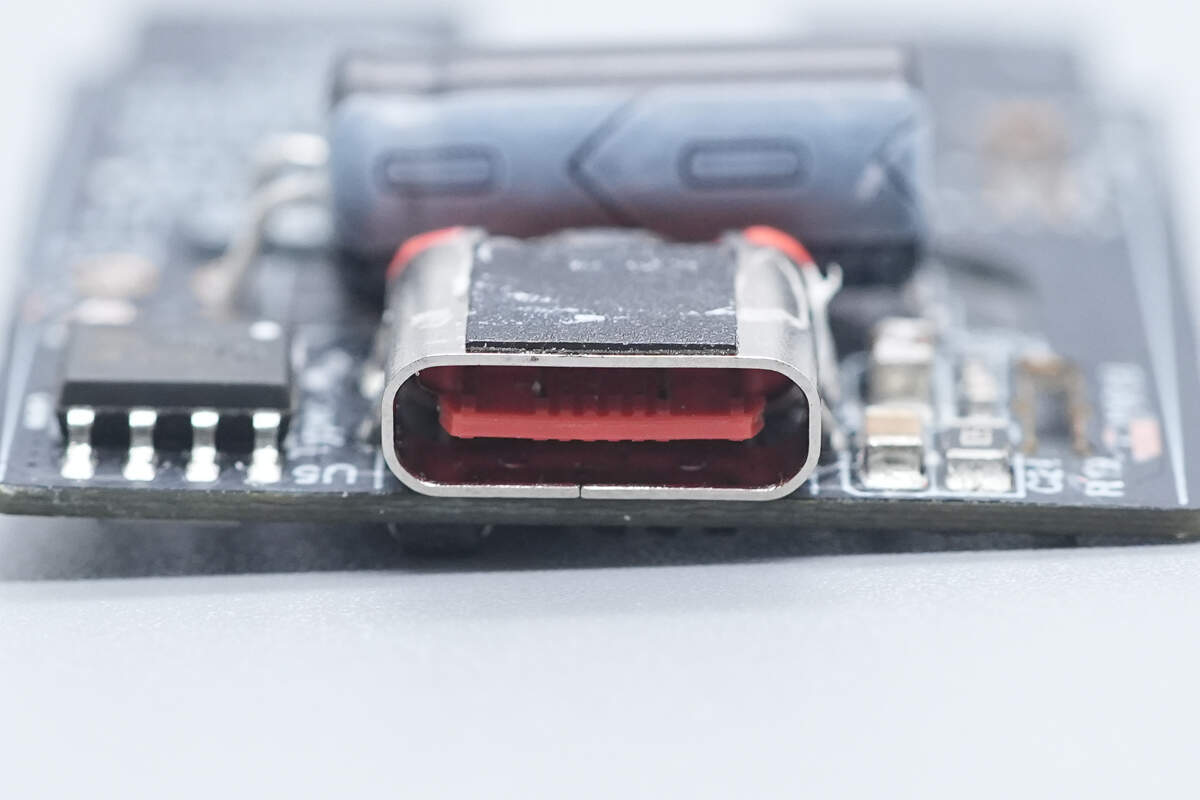
The USB-C socket is soldered through vias, with a Mylar sheet attached on top.
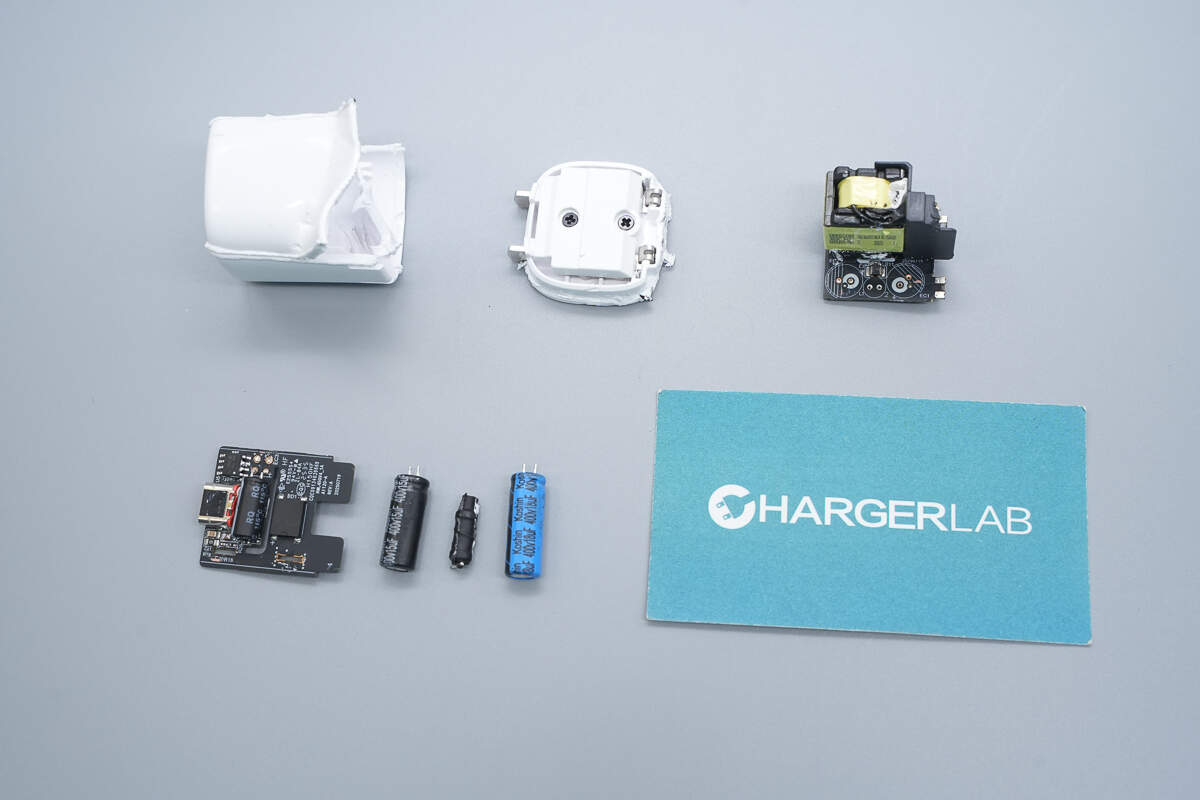
Well, those are all components of the Xiaomi 45W GaN Pudding Charger.
Summary of ChargerLAB
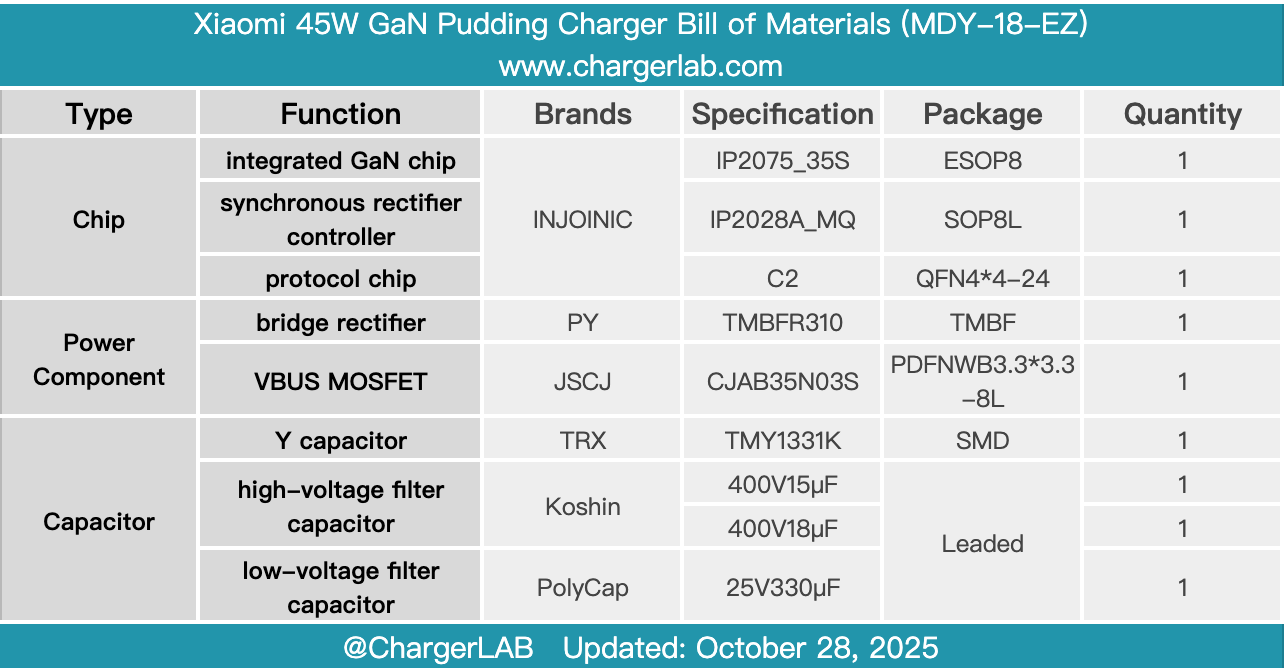
Here is the component list of the Xiaomi 45W GaN Pudding Charger for your convenience.
It continues the series’ design and features a foldable plug. It also supports Xiaomi’s proprietary fast charging and 45W PD, ensuring both reliability and compatibility.
After taking it apart, we found that the PCBA module consists of two small PCBs soldered together vertically. Components such as the transformer are reinforced with adhesive and treated for insulation and isolation. It uses a highly integrated GaN solution with Injoinic IP2075_35S and IP2028A_MQ, along with a customized protocol chip. This design not only simplifies the circuitry, reduces size, and lowers system cost, but also improves consistency. In addition, Koshin and PolyCap capacitors are used for filtering, ensuring reliable materials and workmanship.
Related Articles:
1. Teardown of Anker Nano 45W GaN Charger with Display (A121D)
2. Teardown of Segotep 3200W Titanium-Rated SiC Digital Server Power Supply (CRPS3200W-12V)
3. Teardown of Xiaomi 33W Nano Power Adapter (MDY-19-ED)

